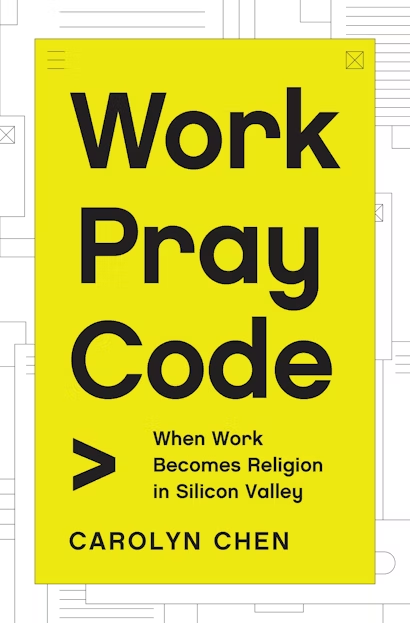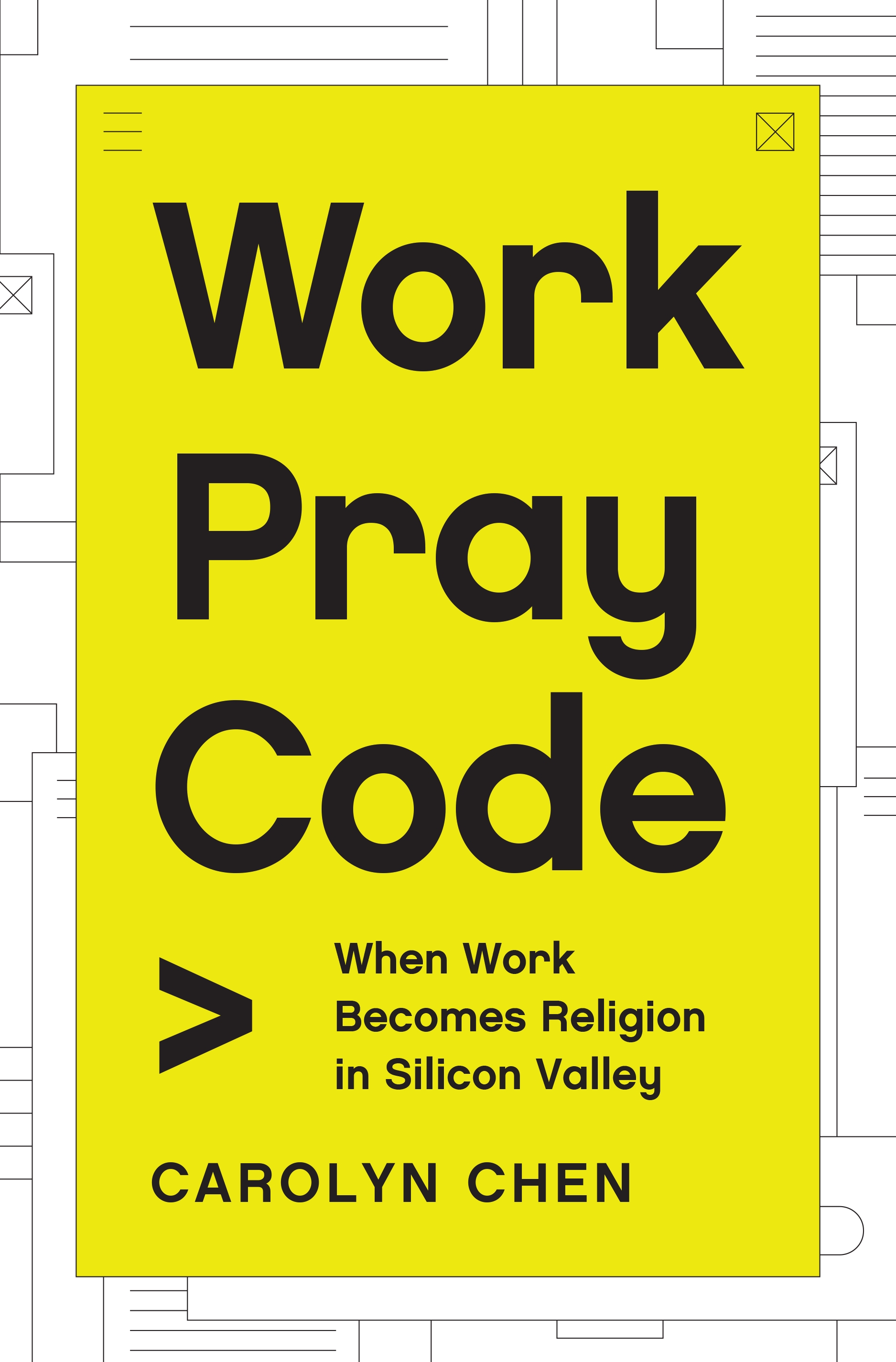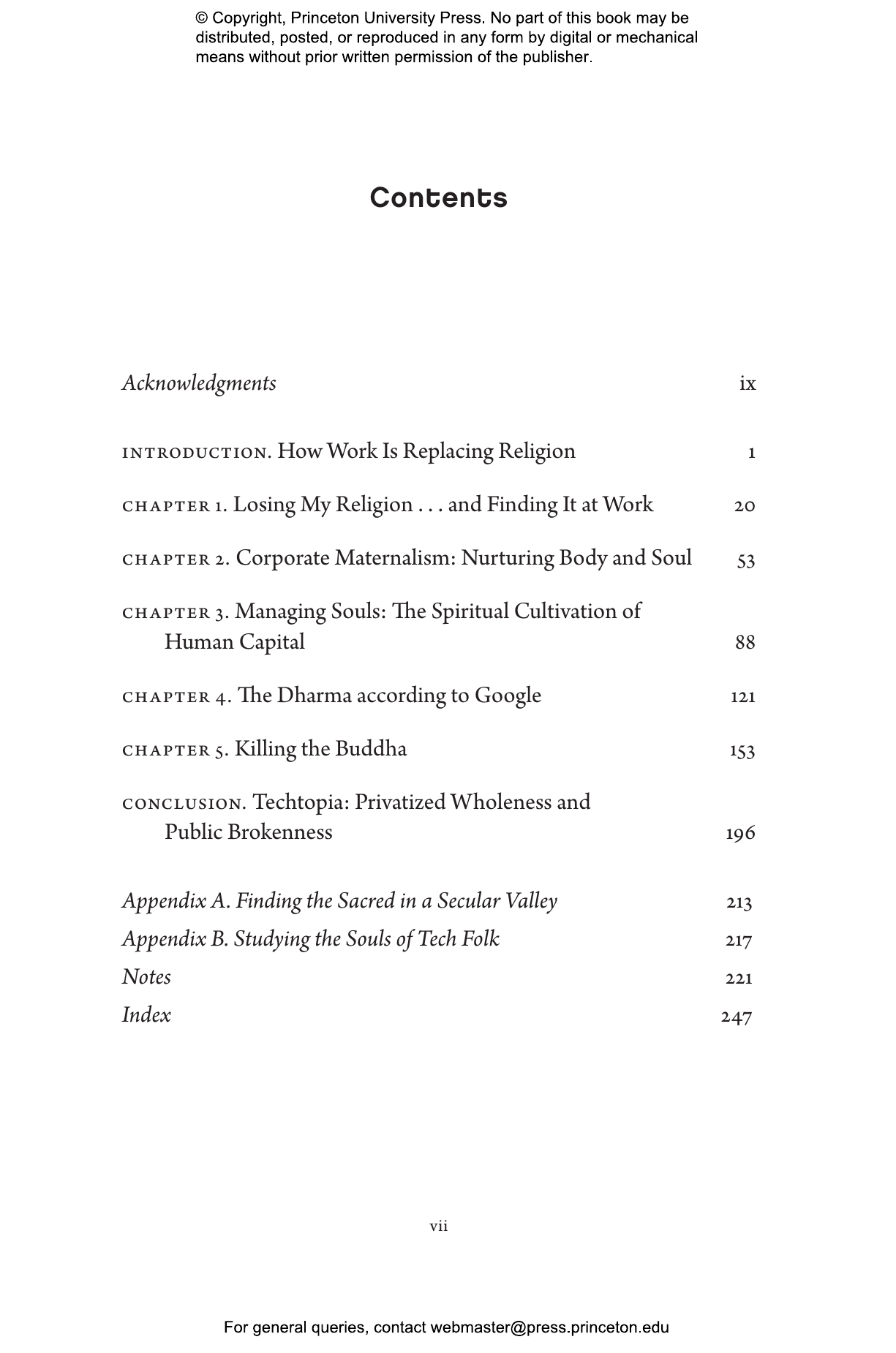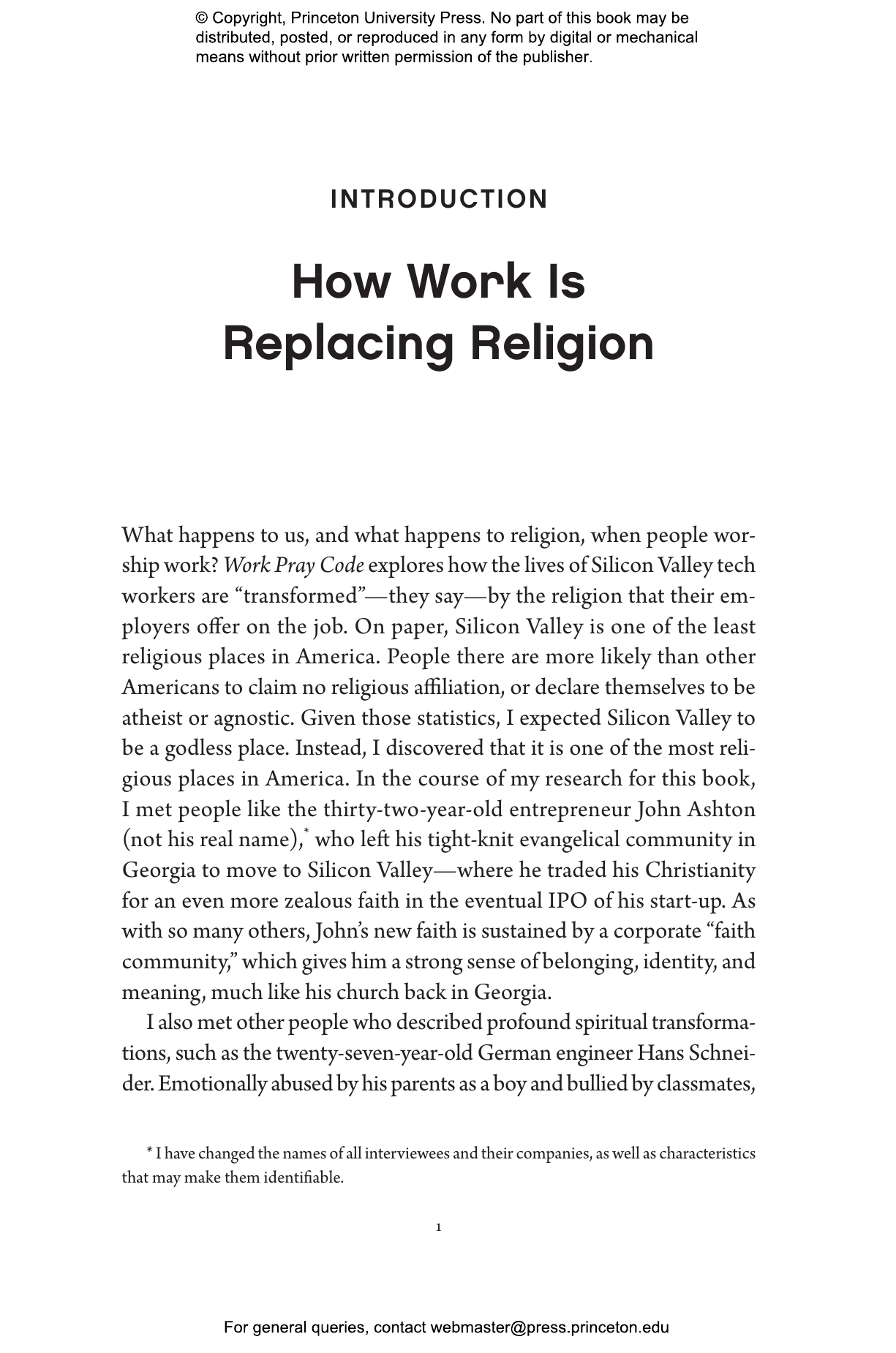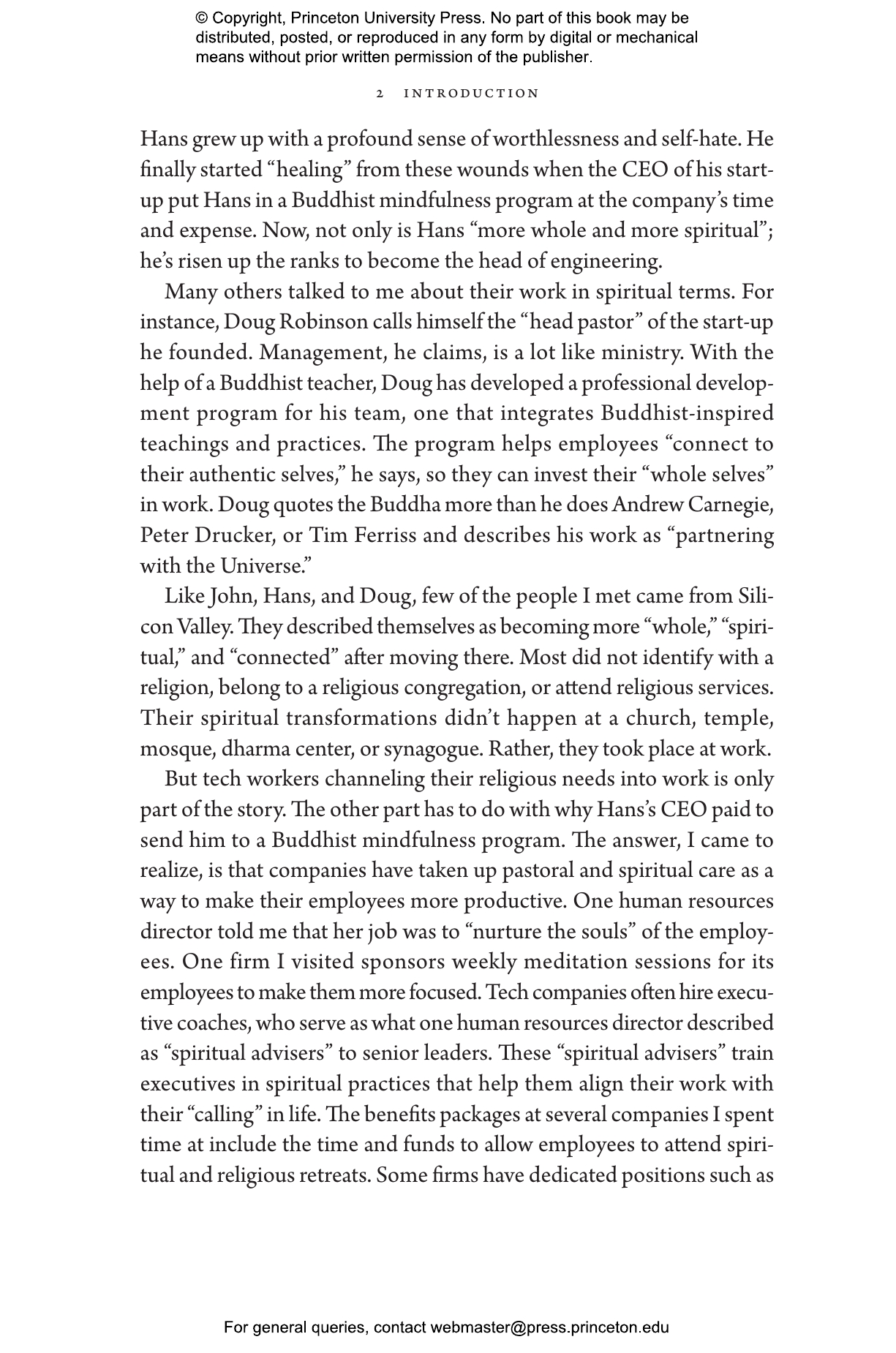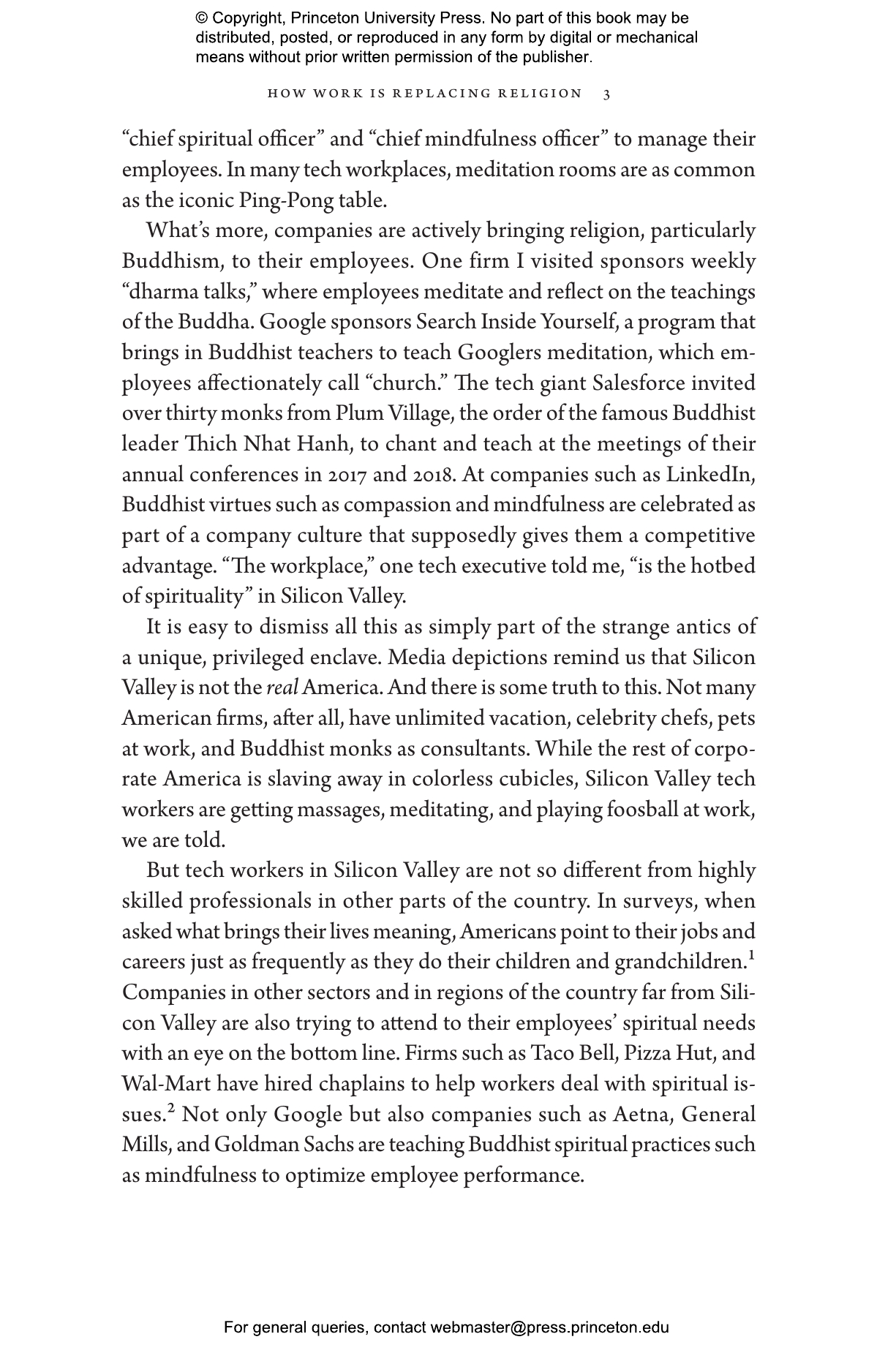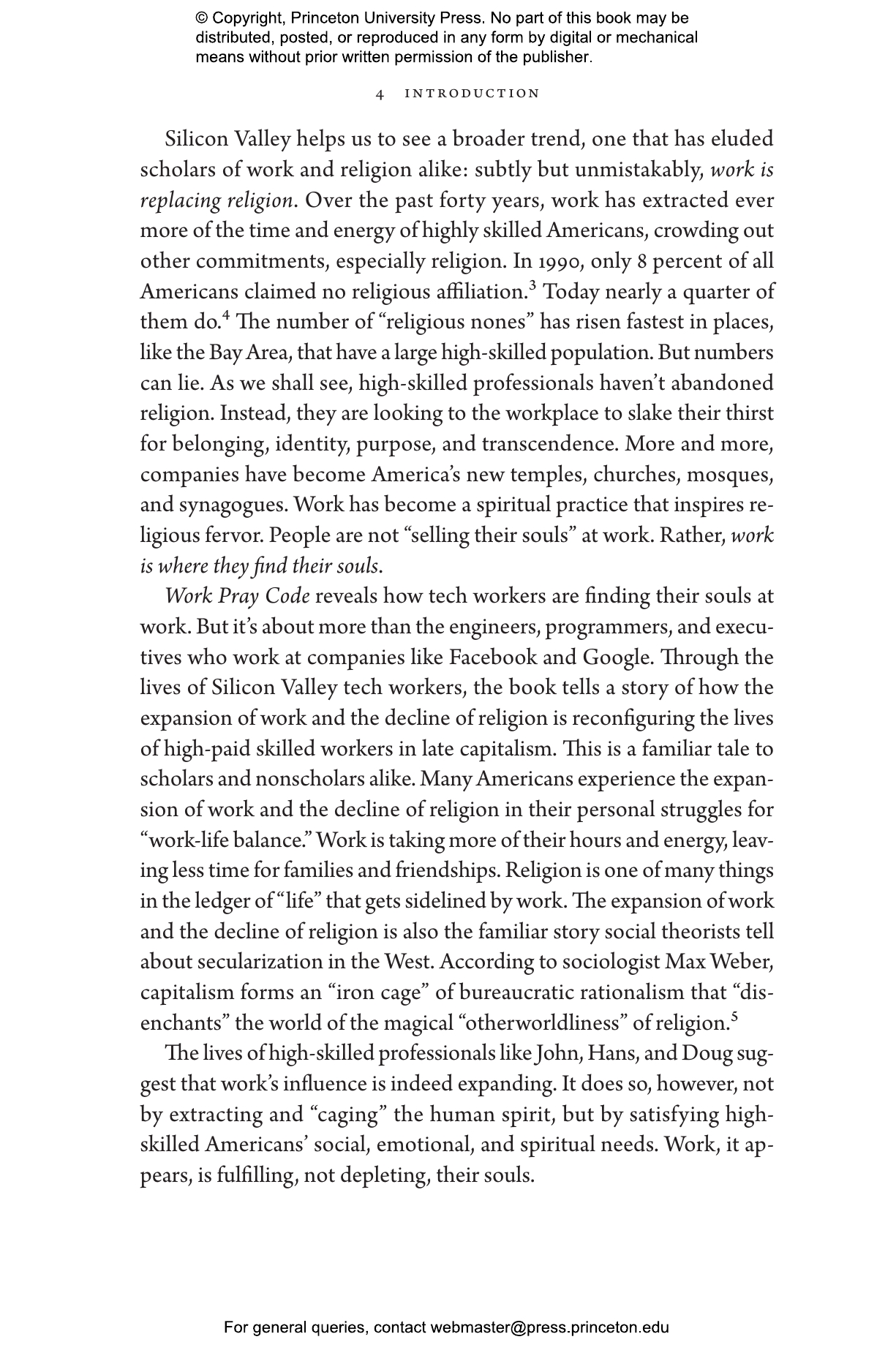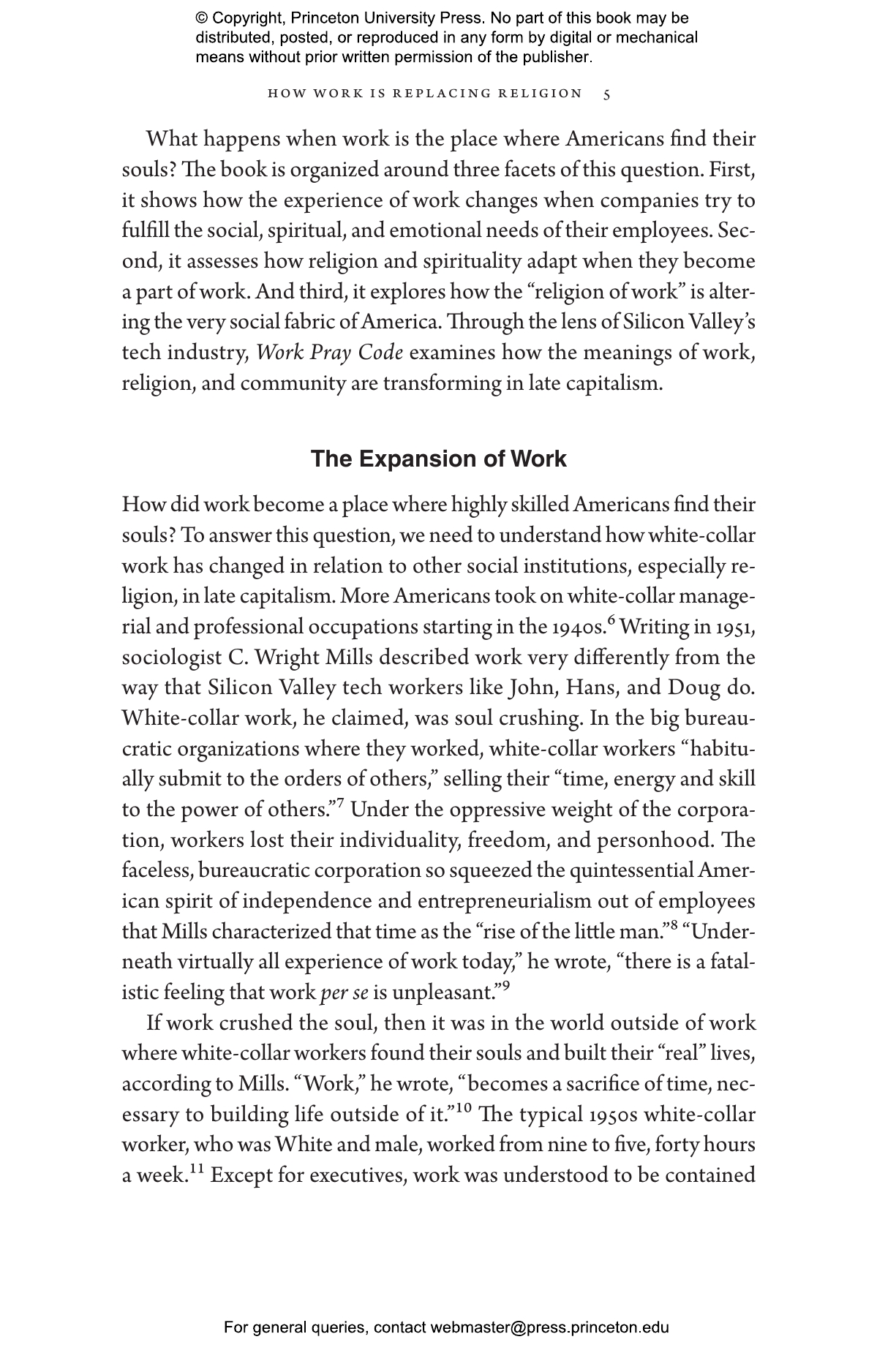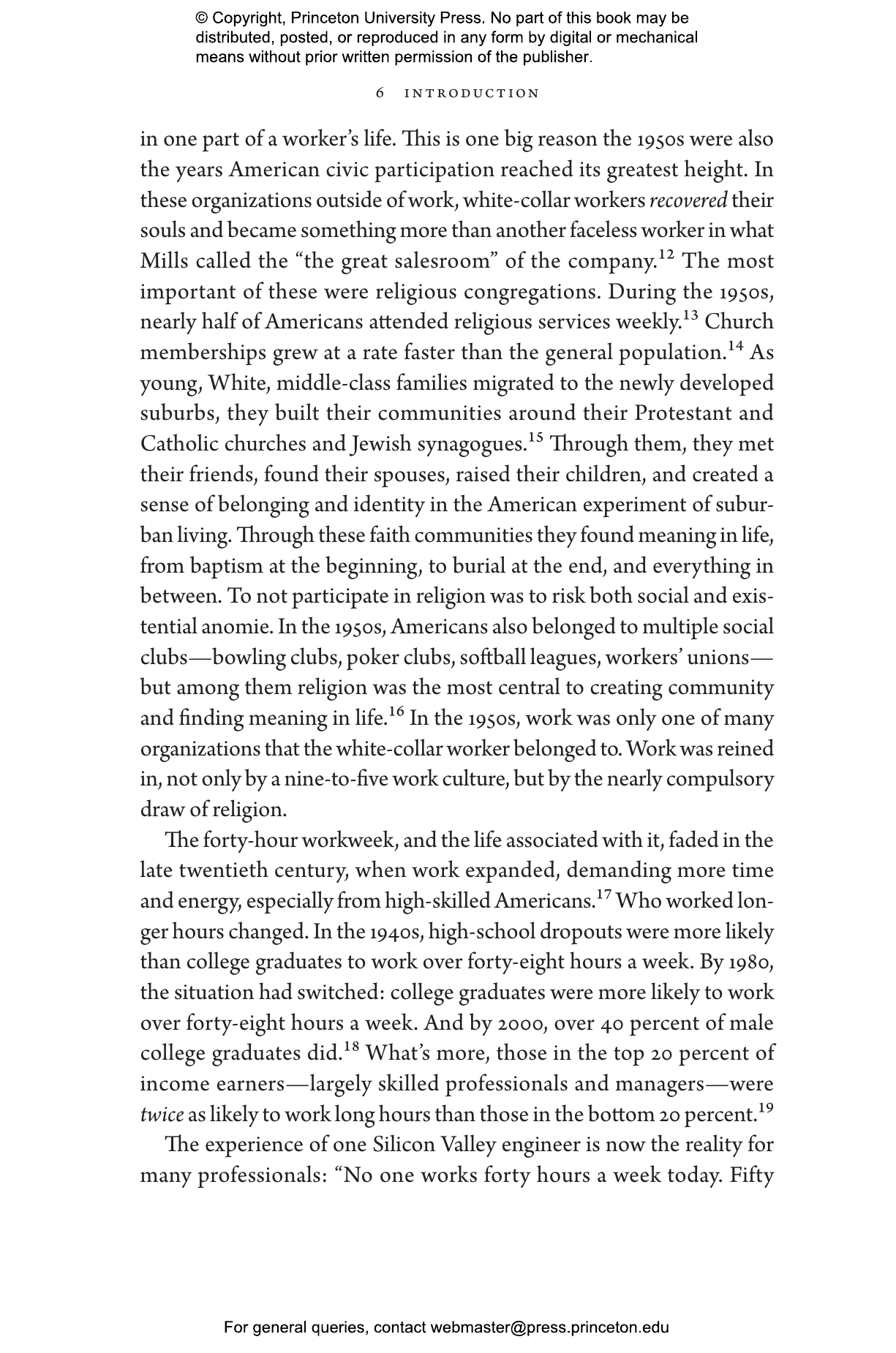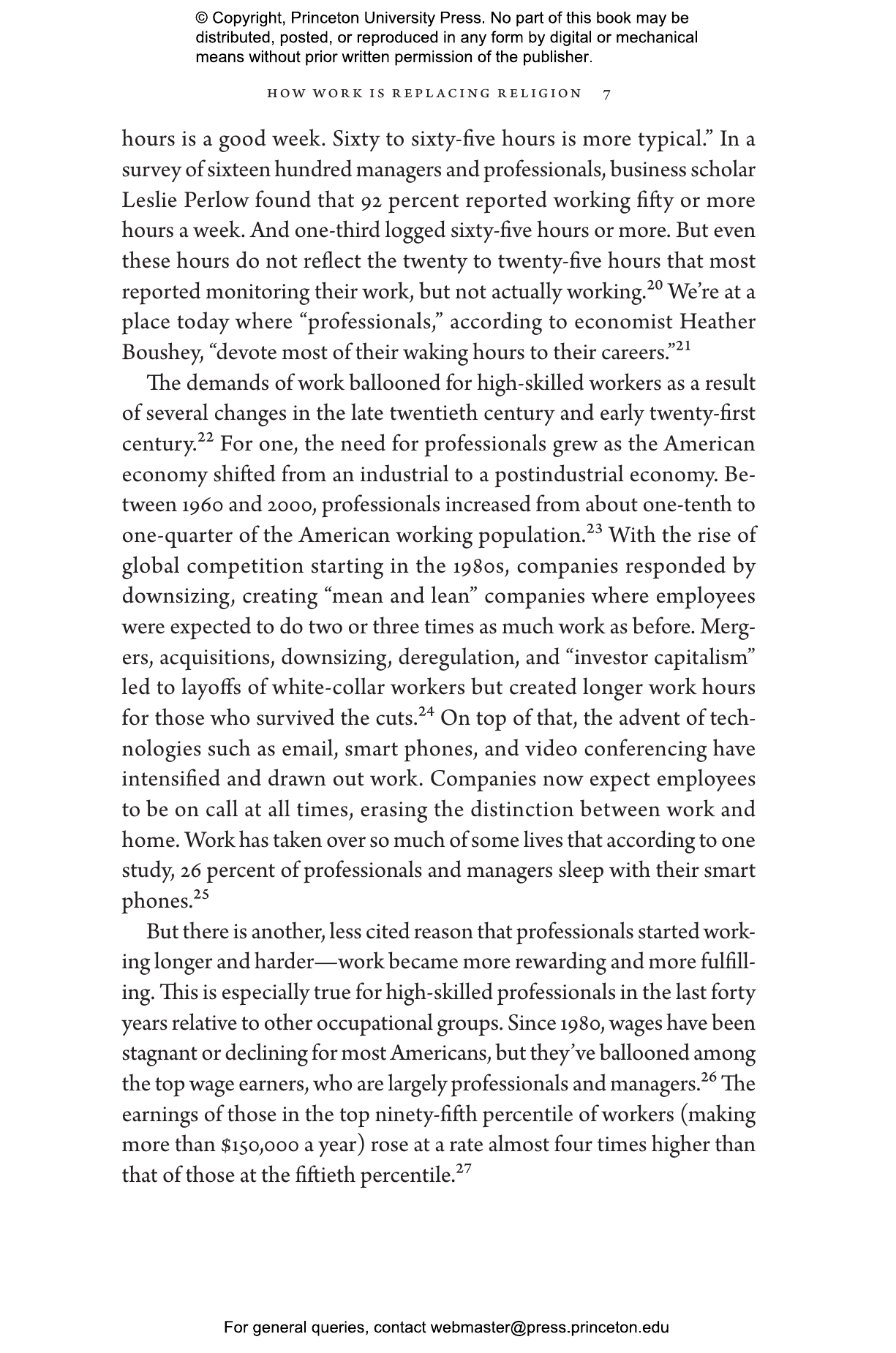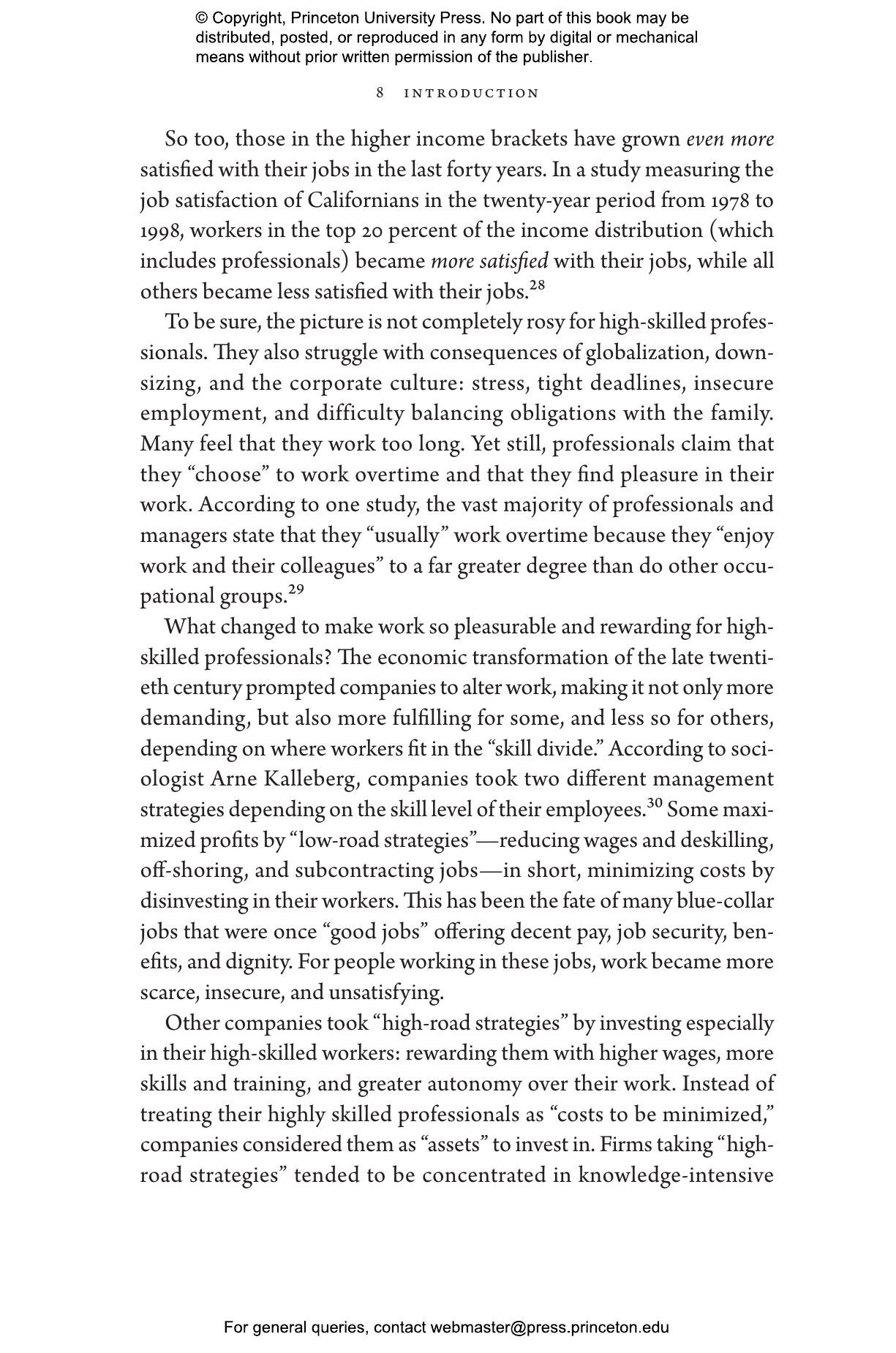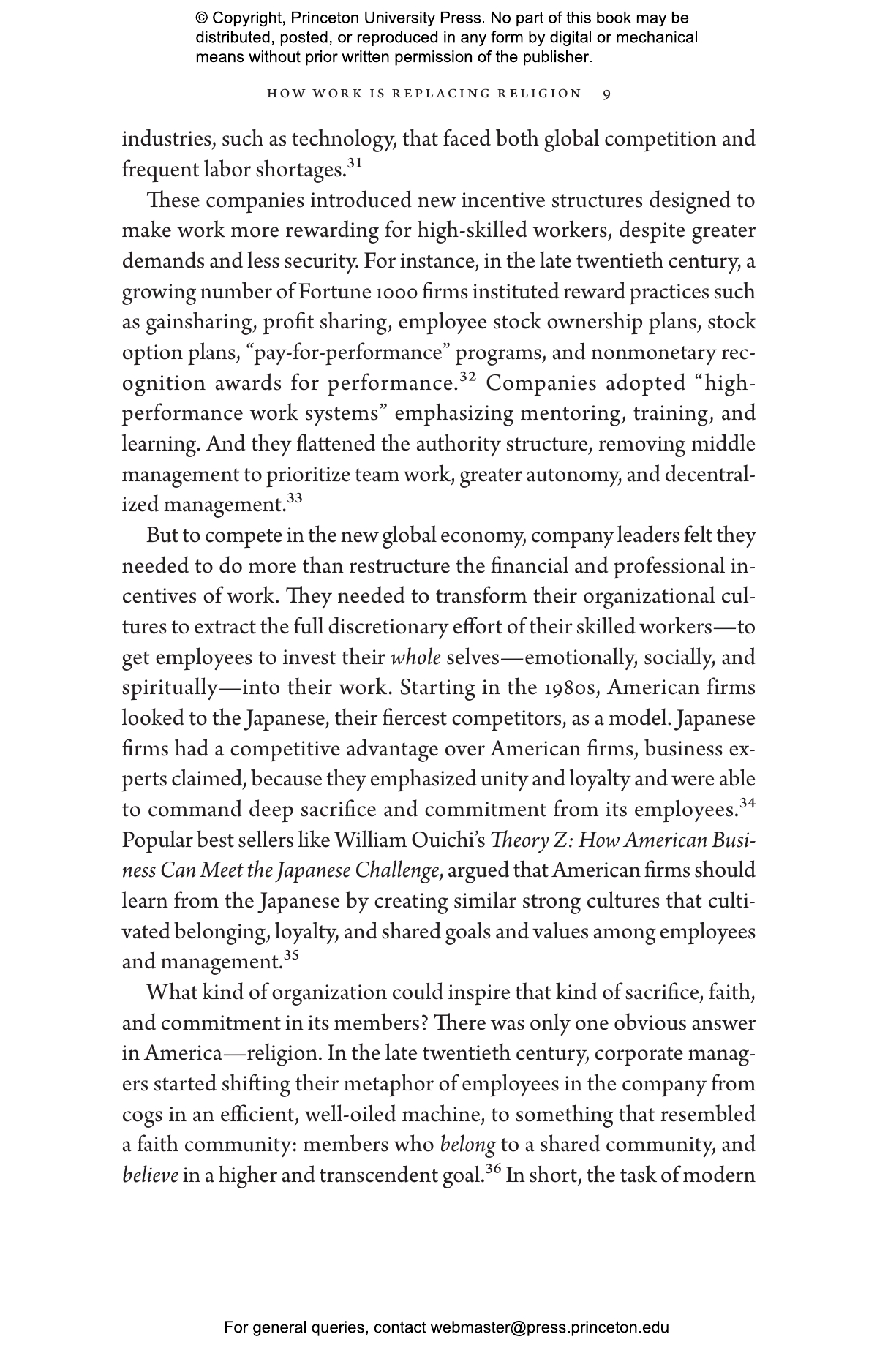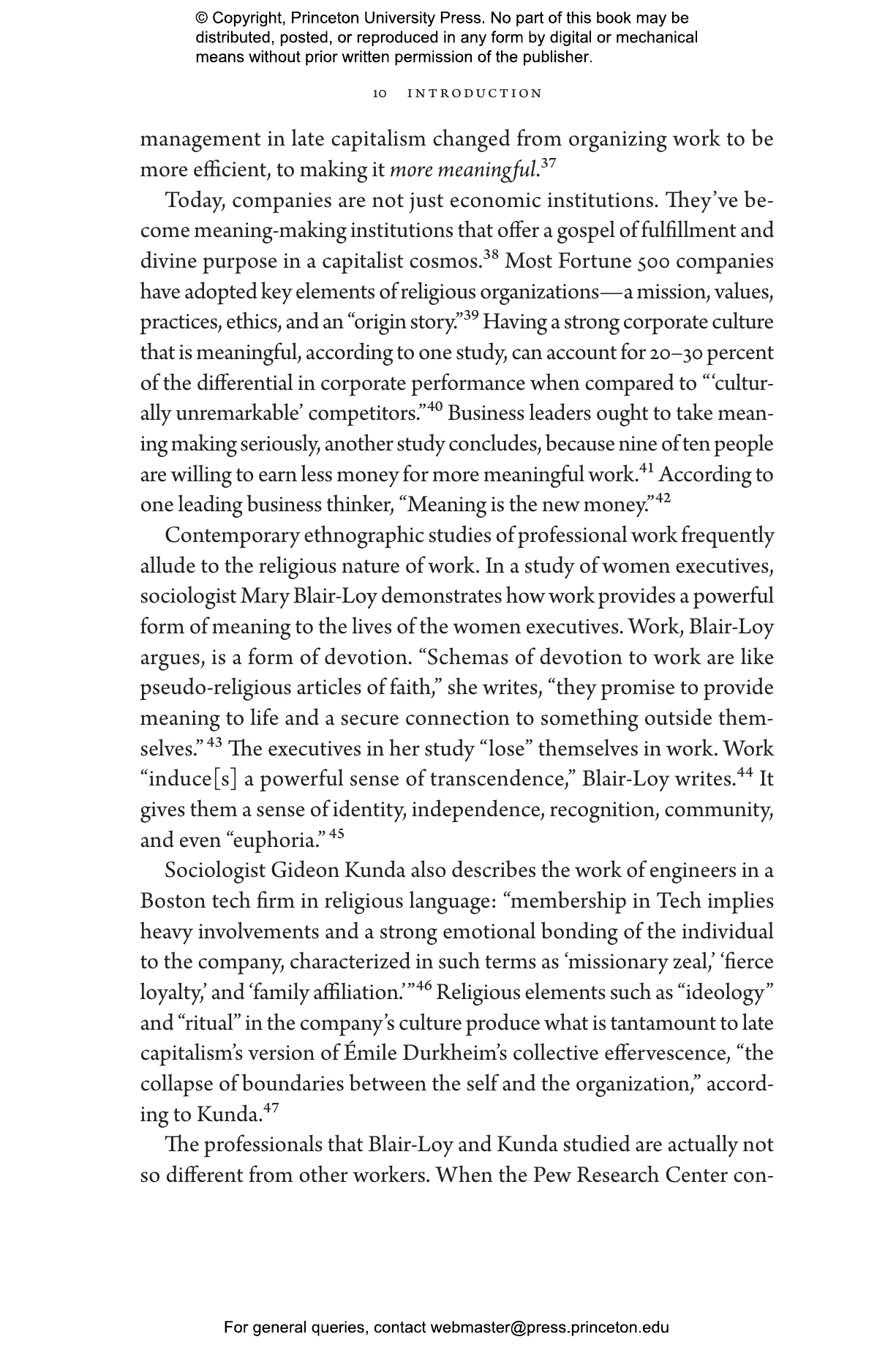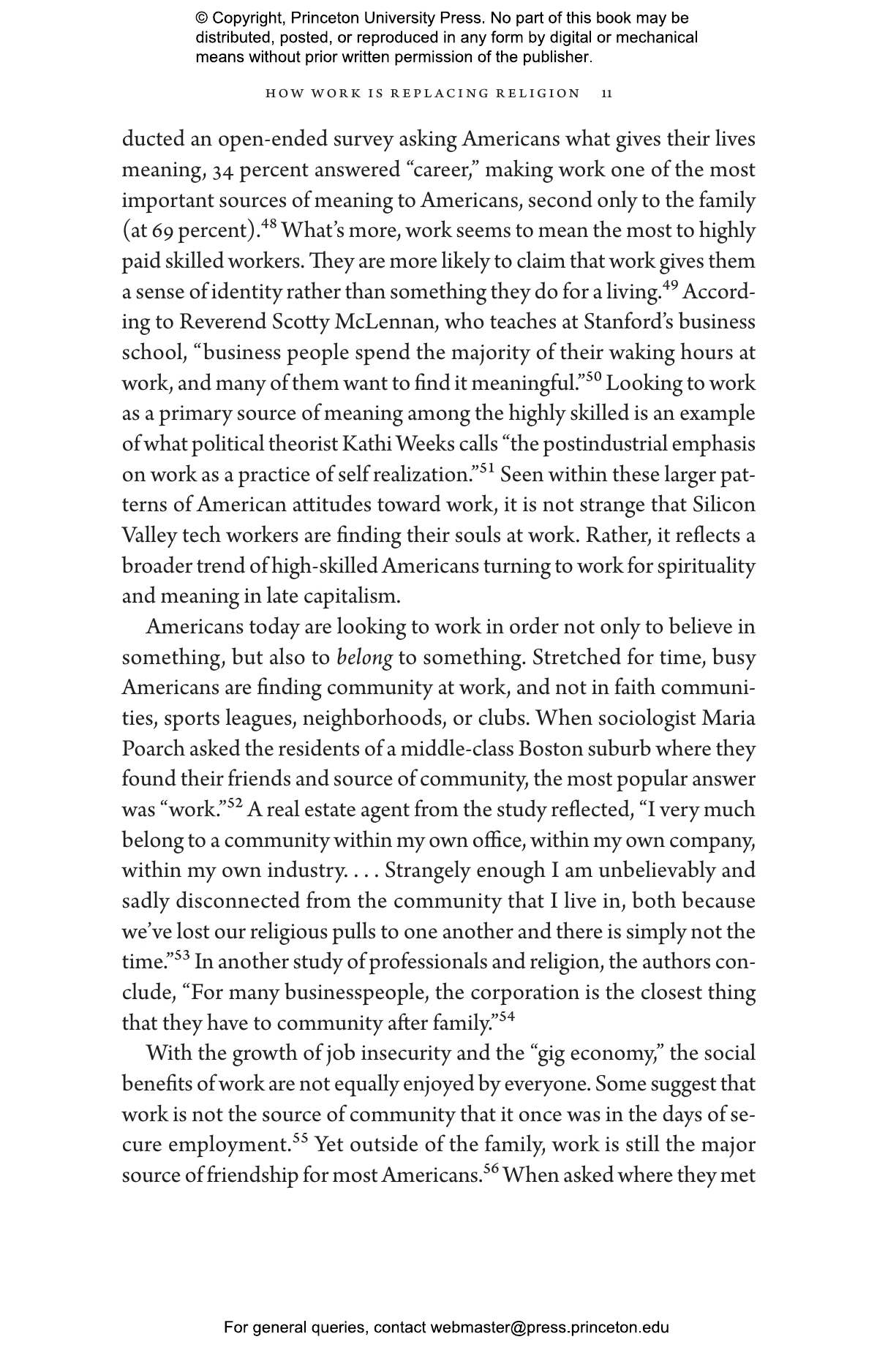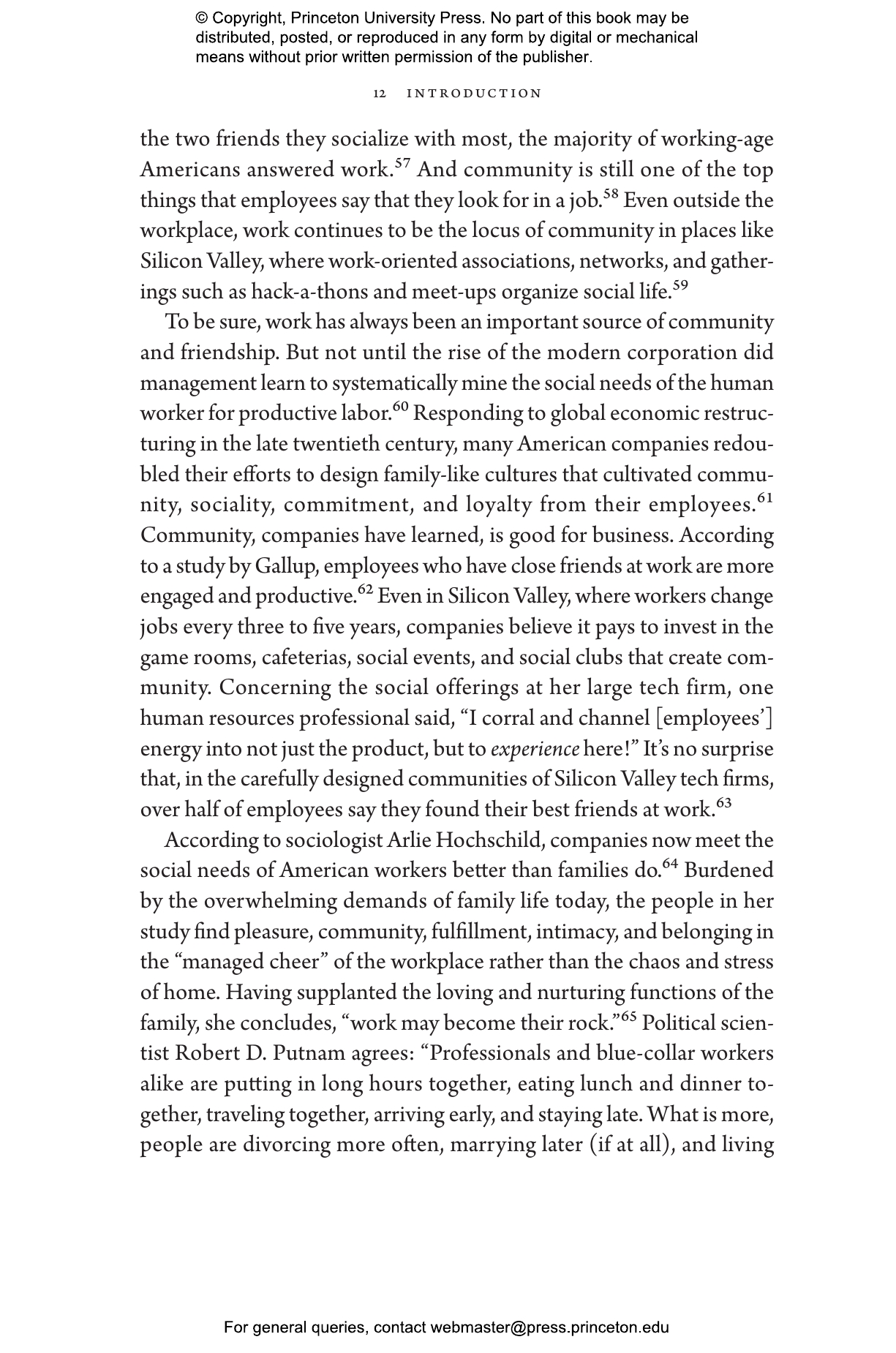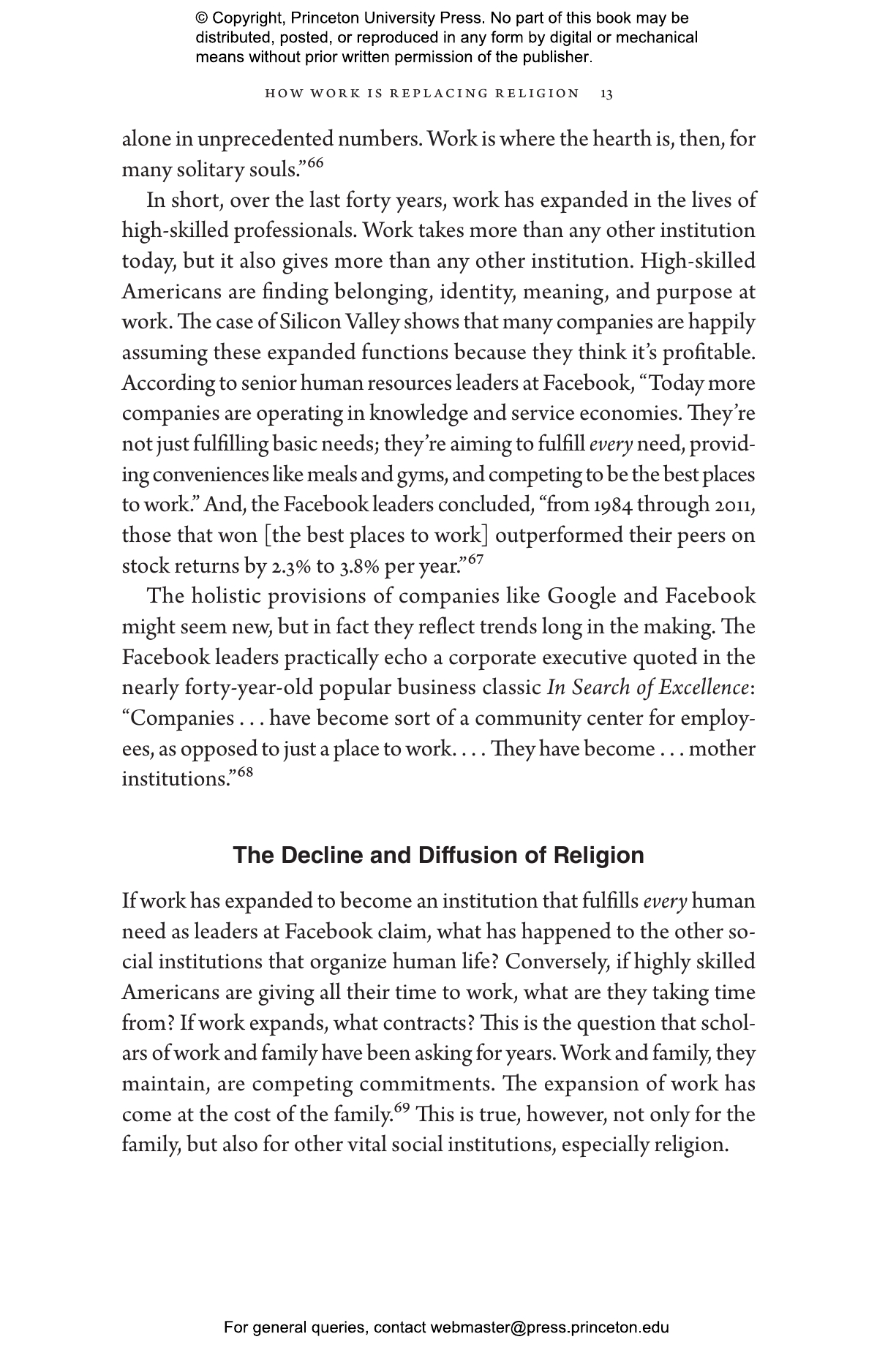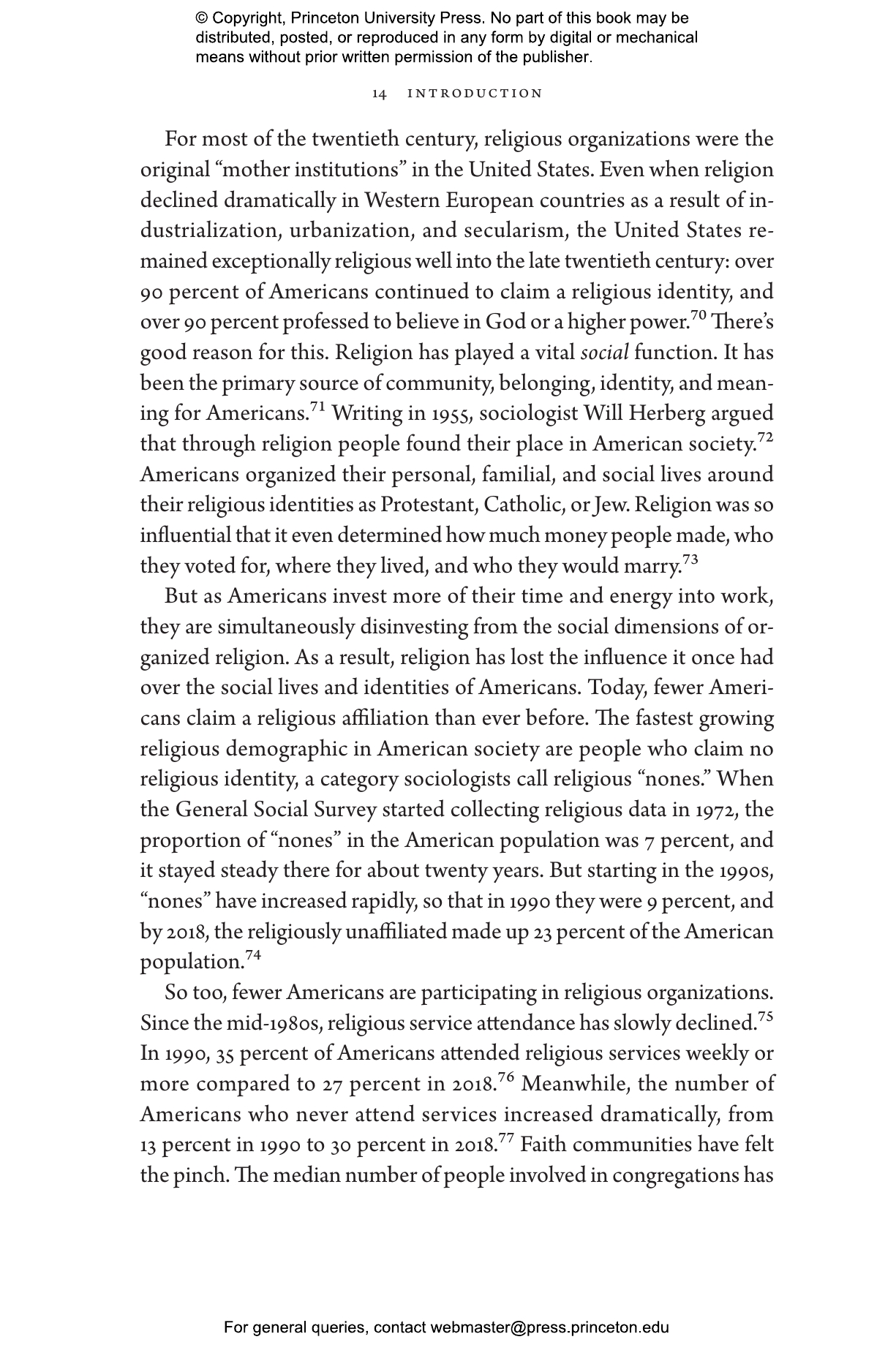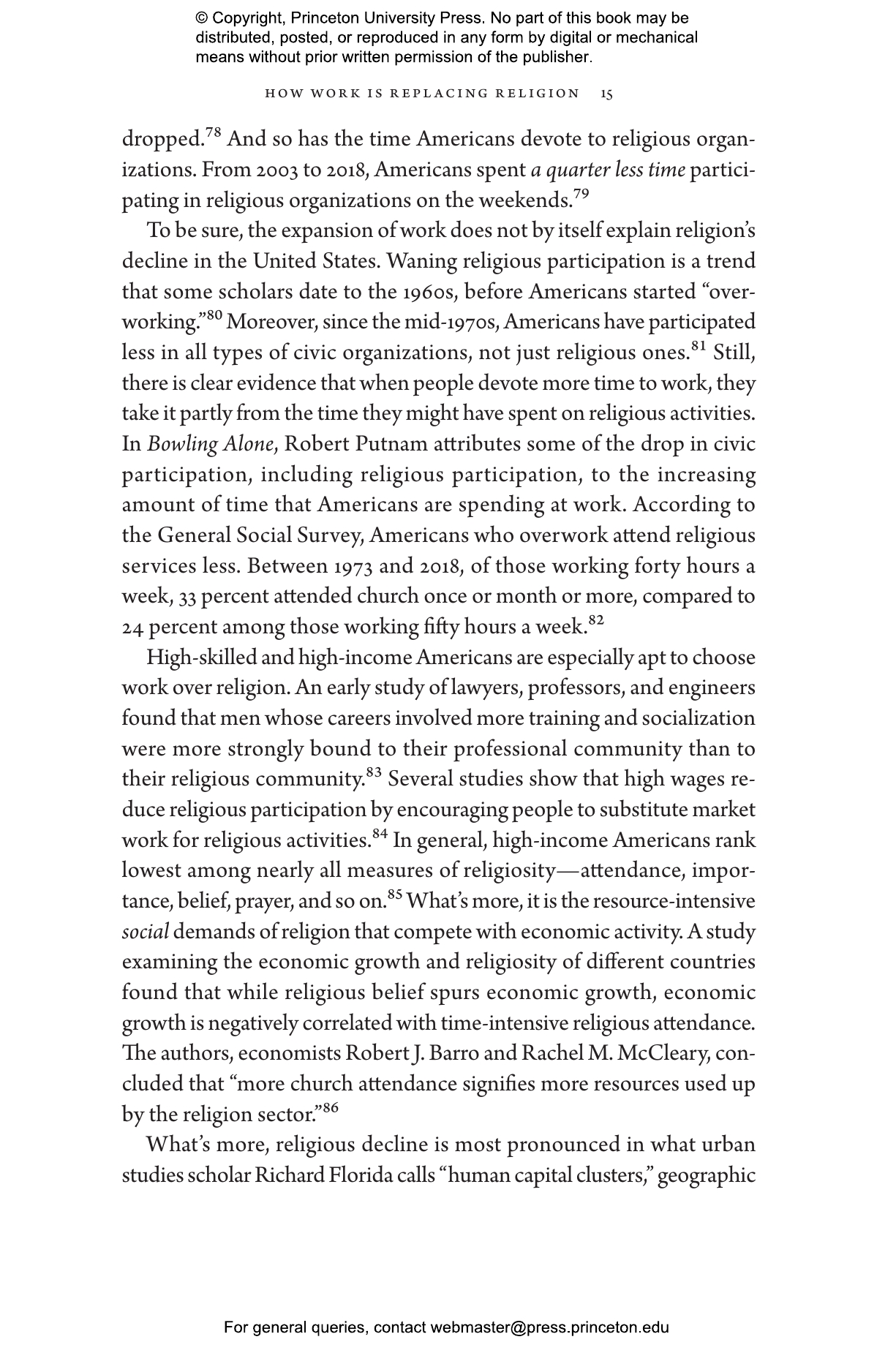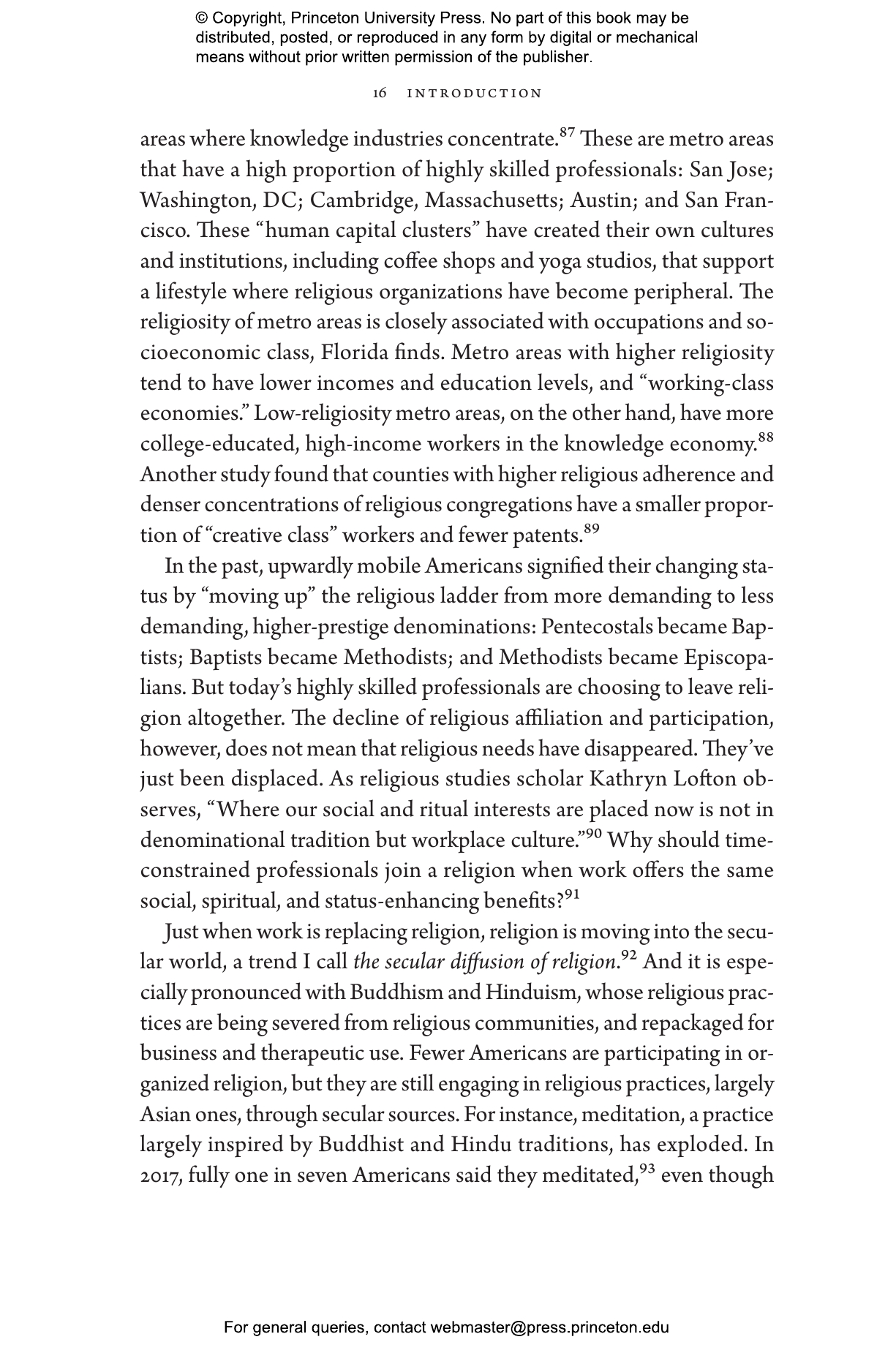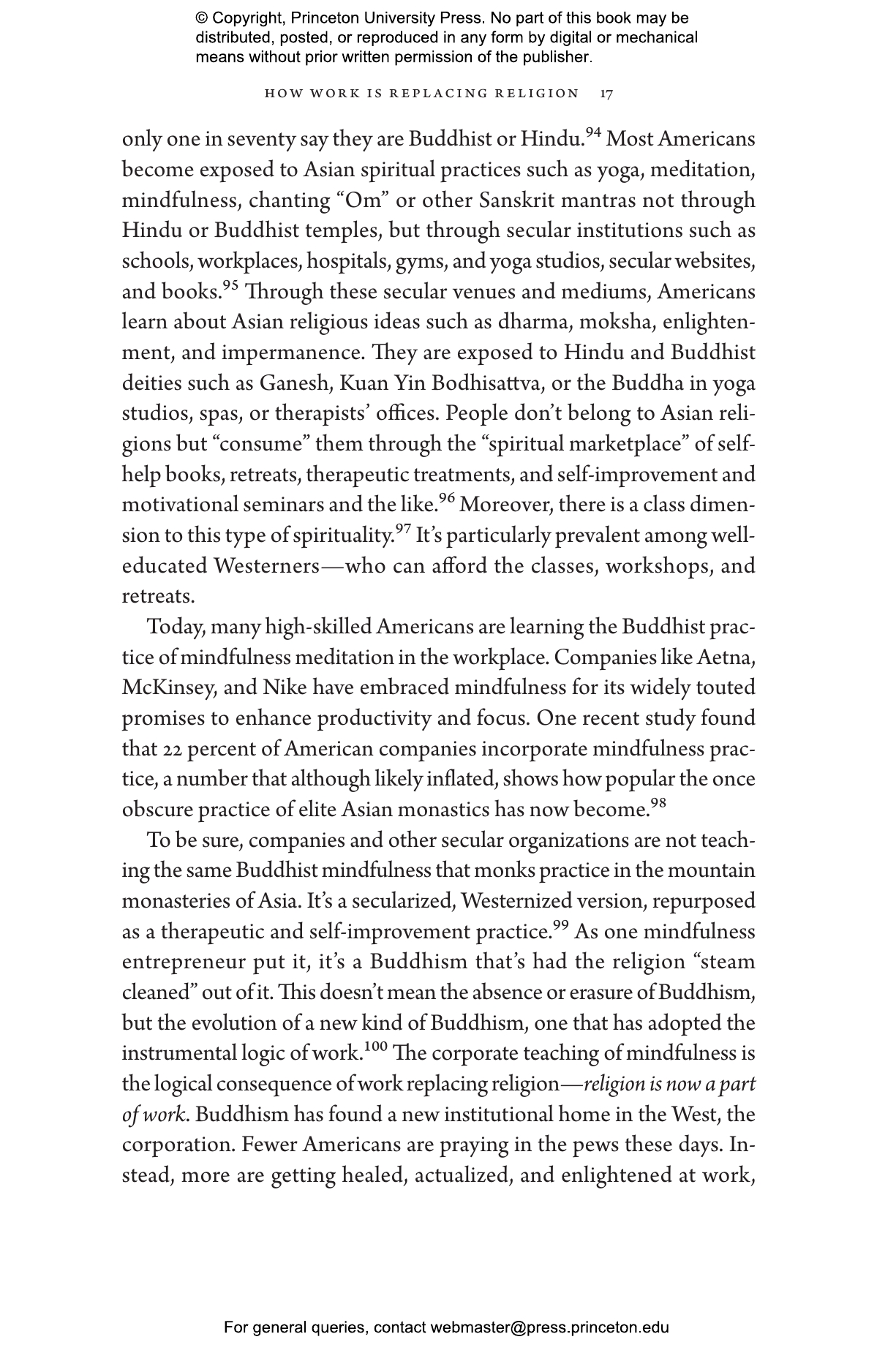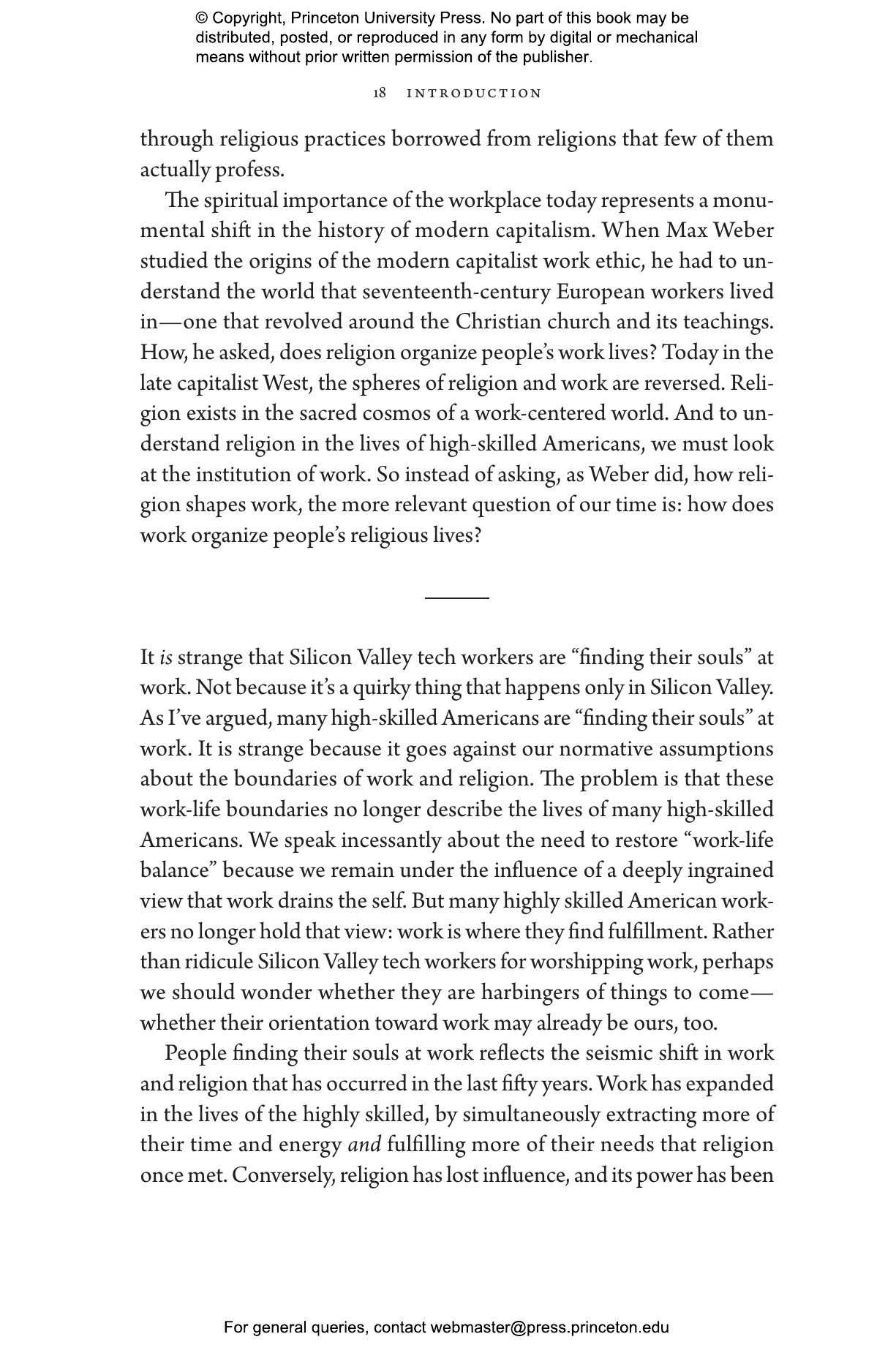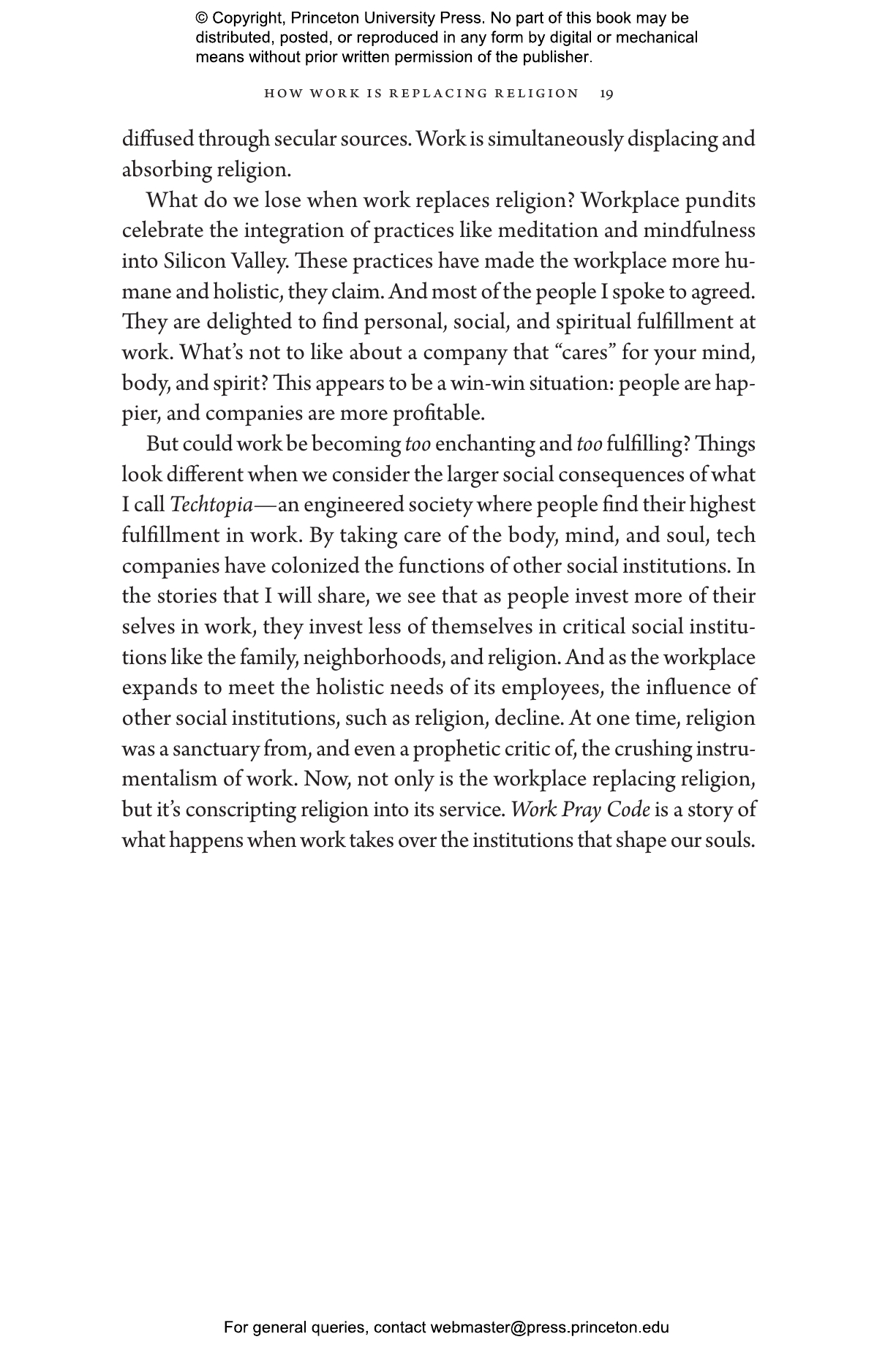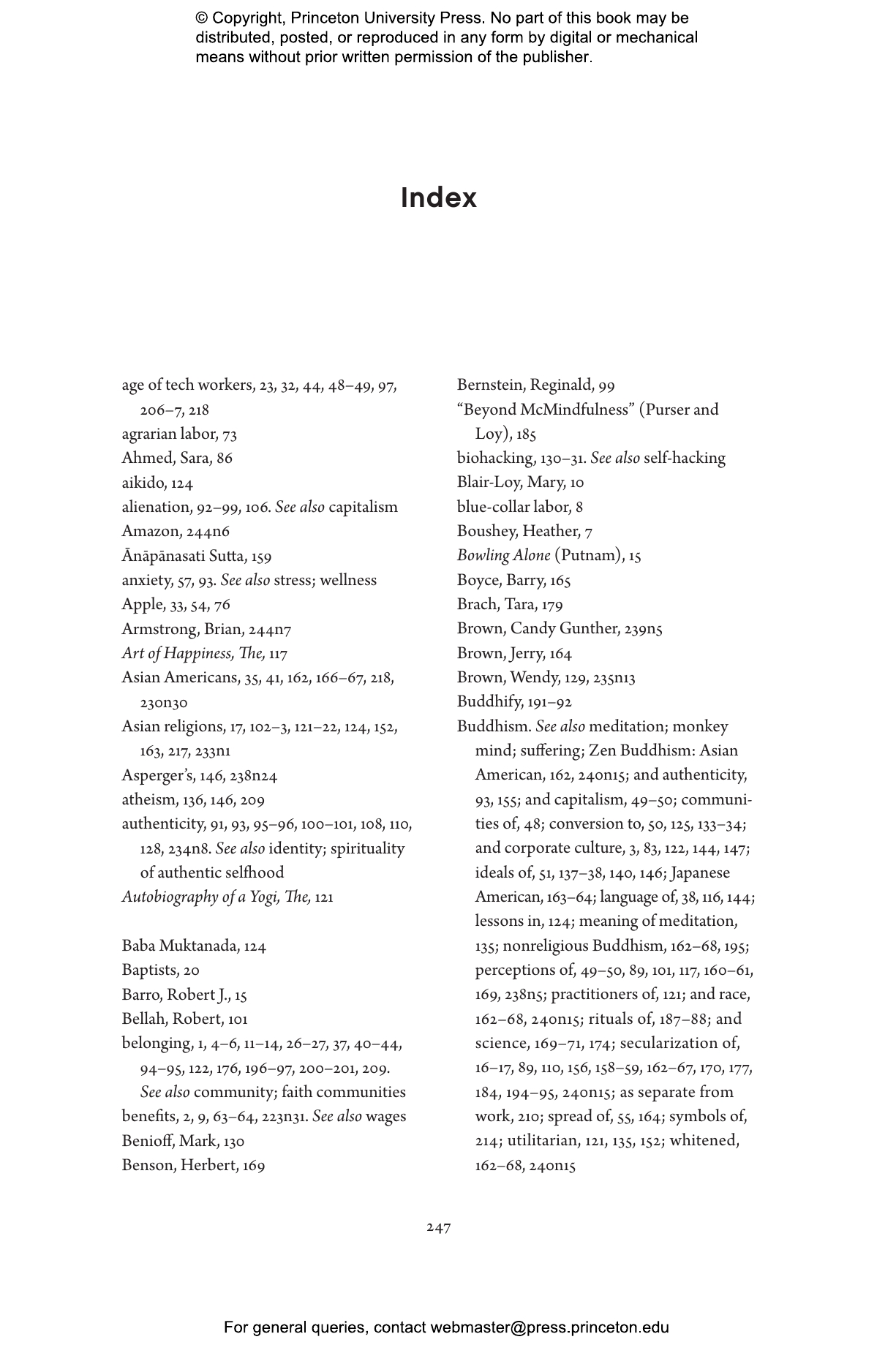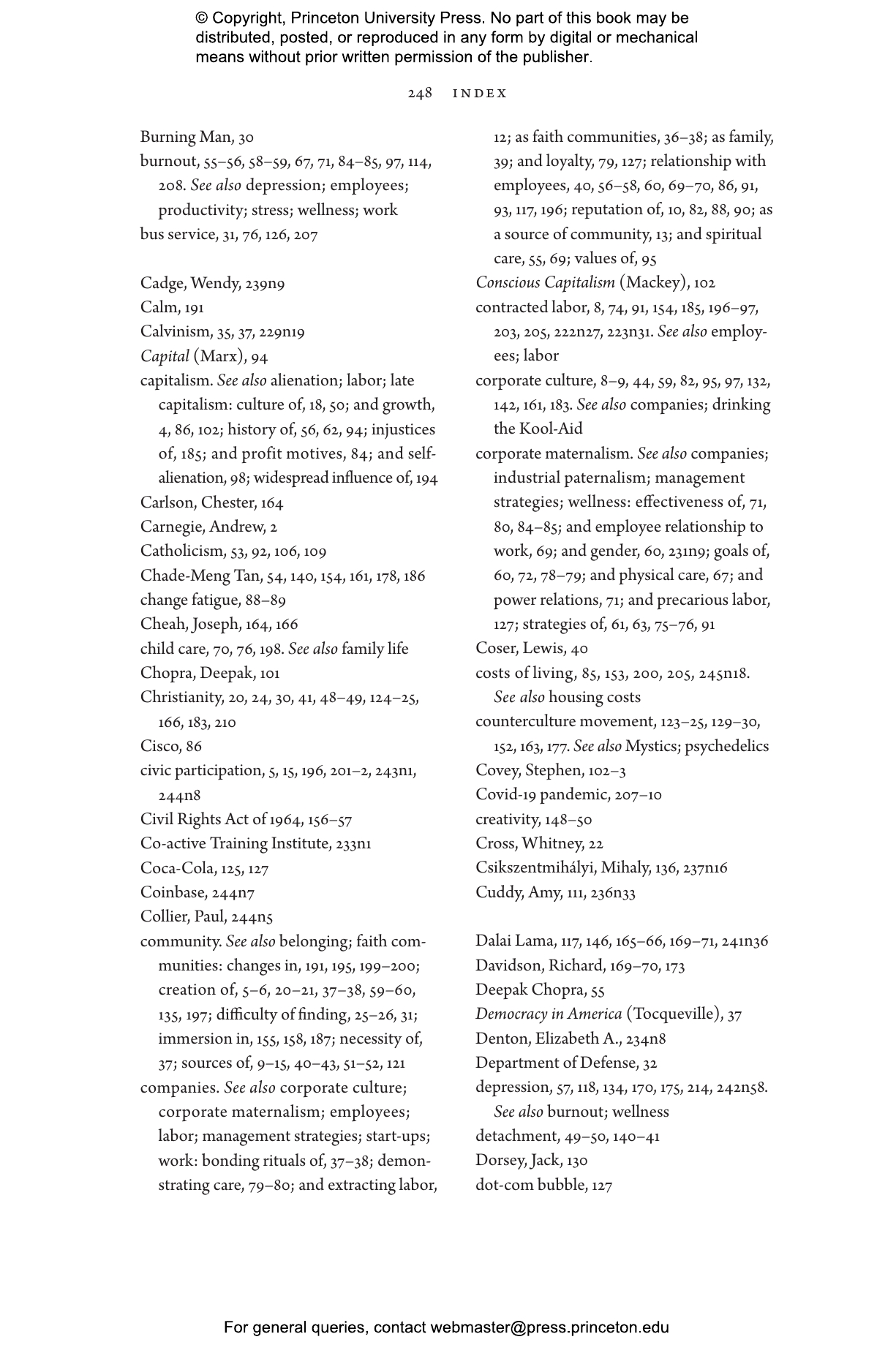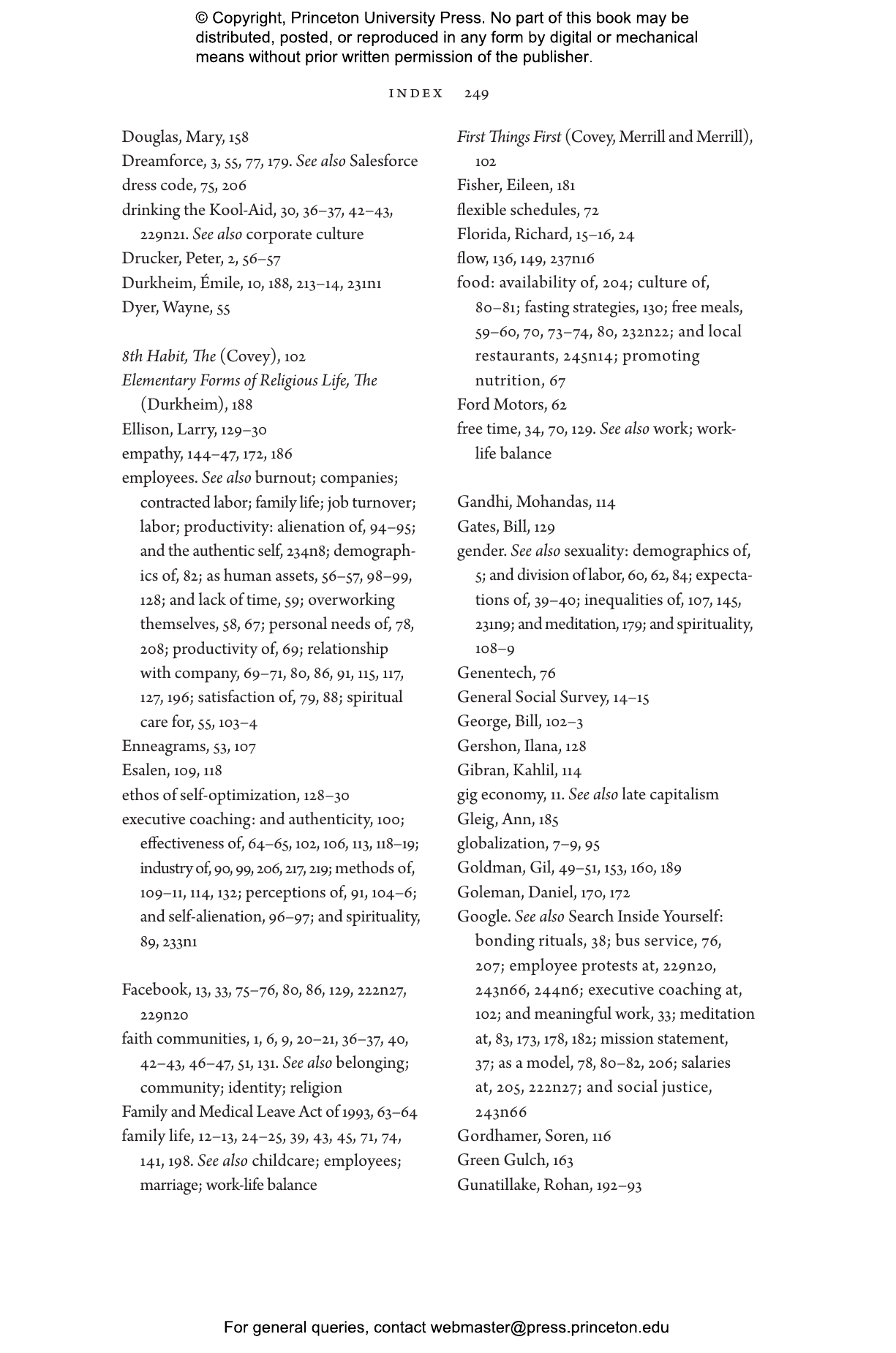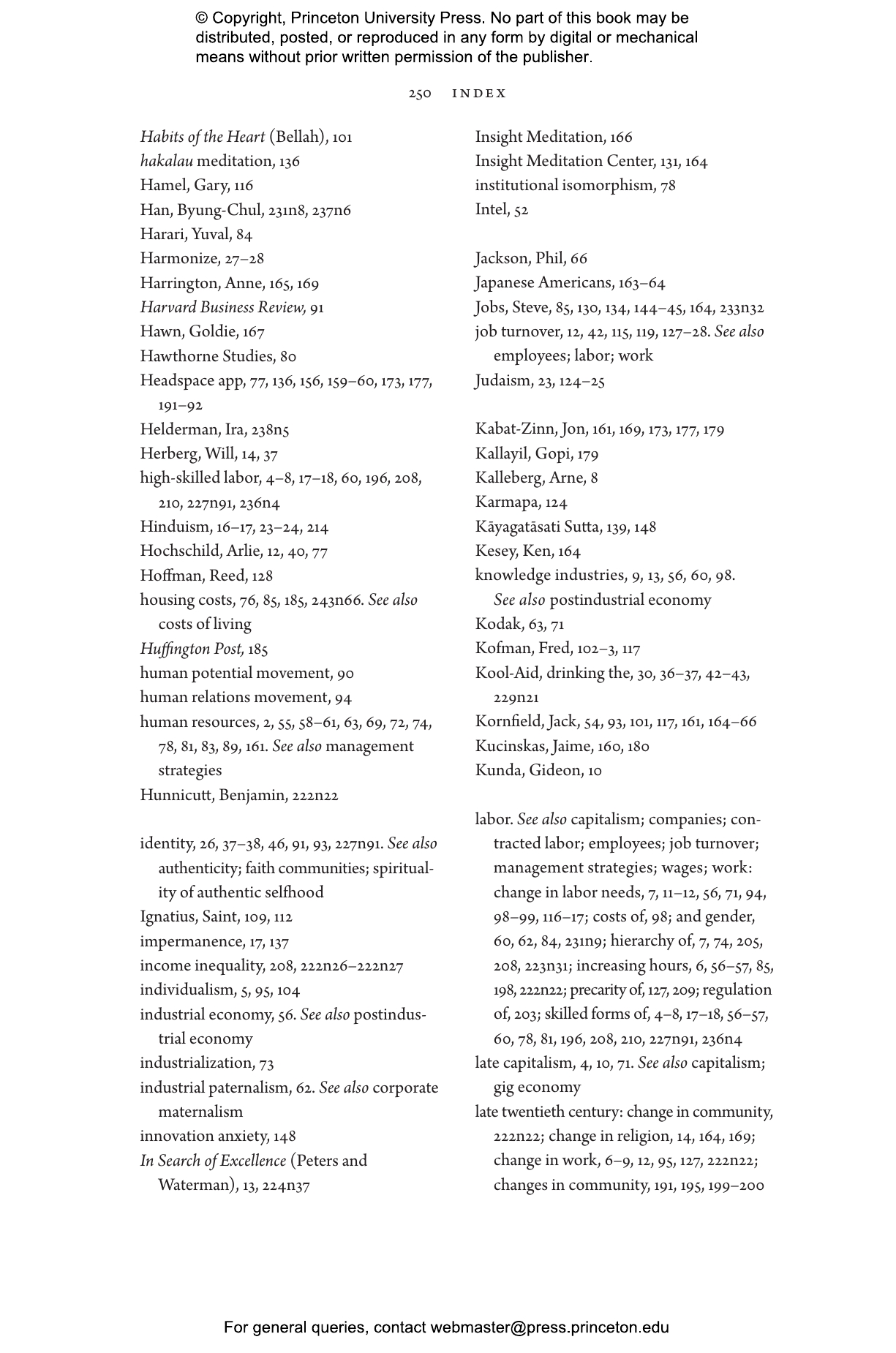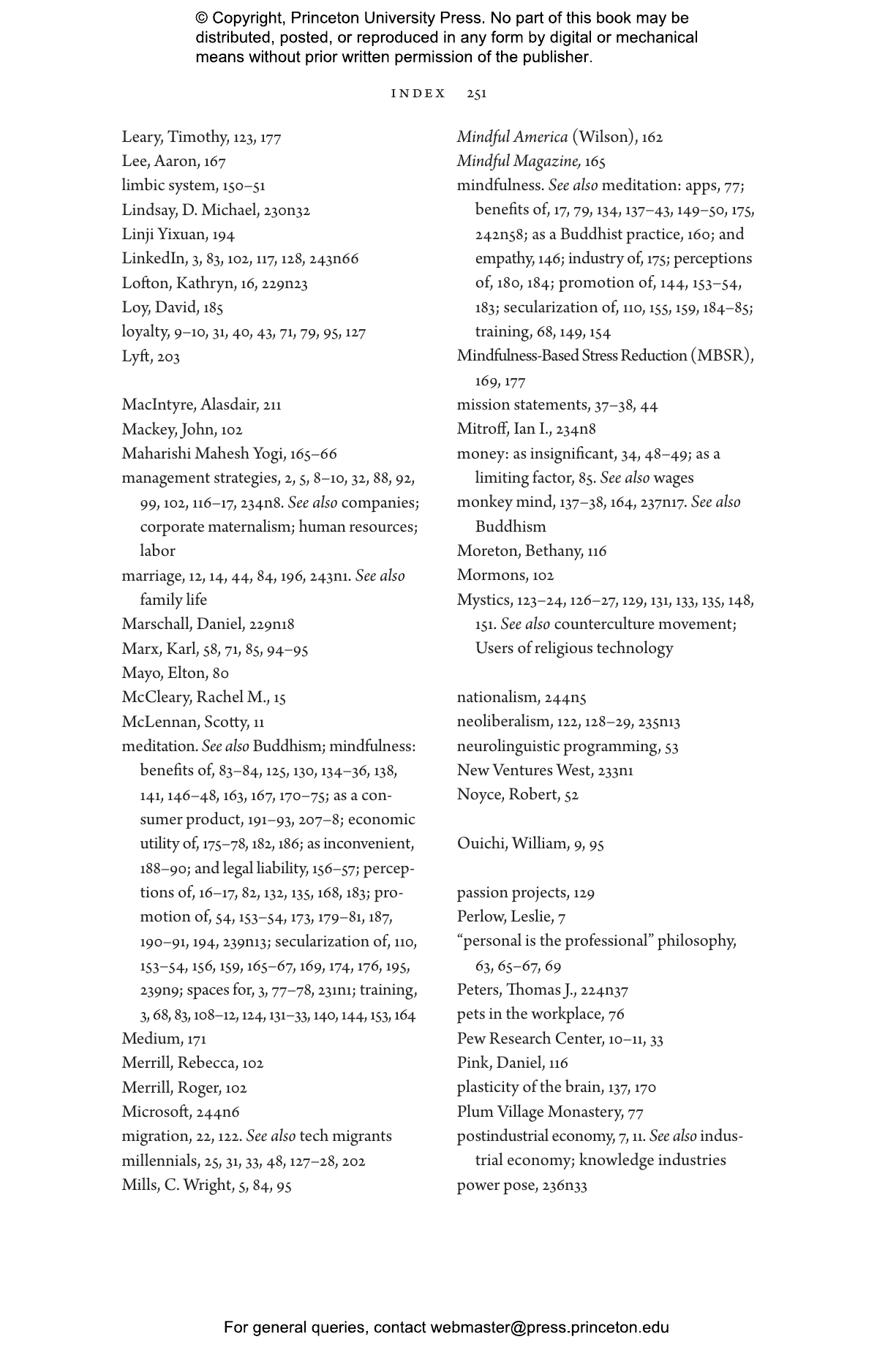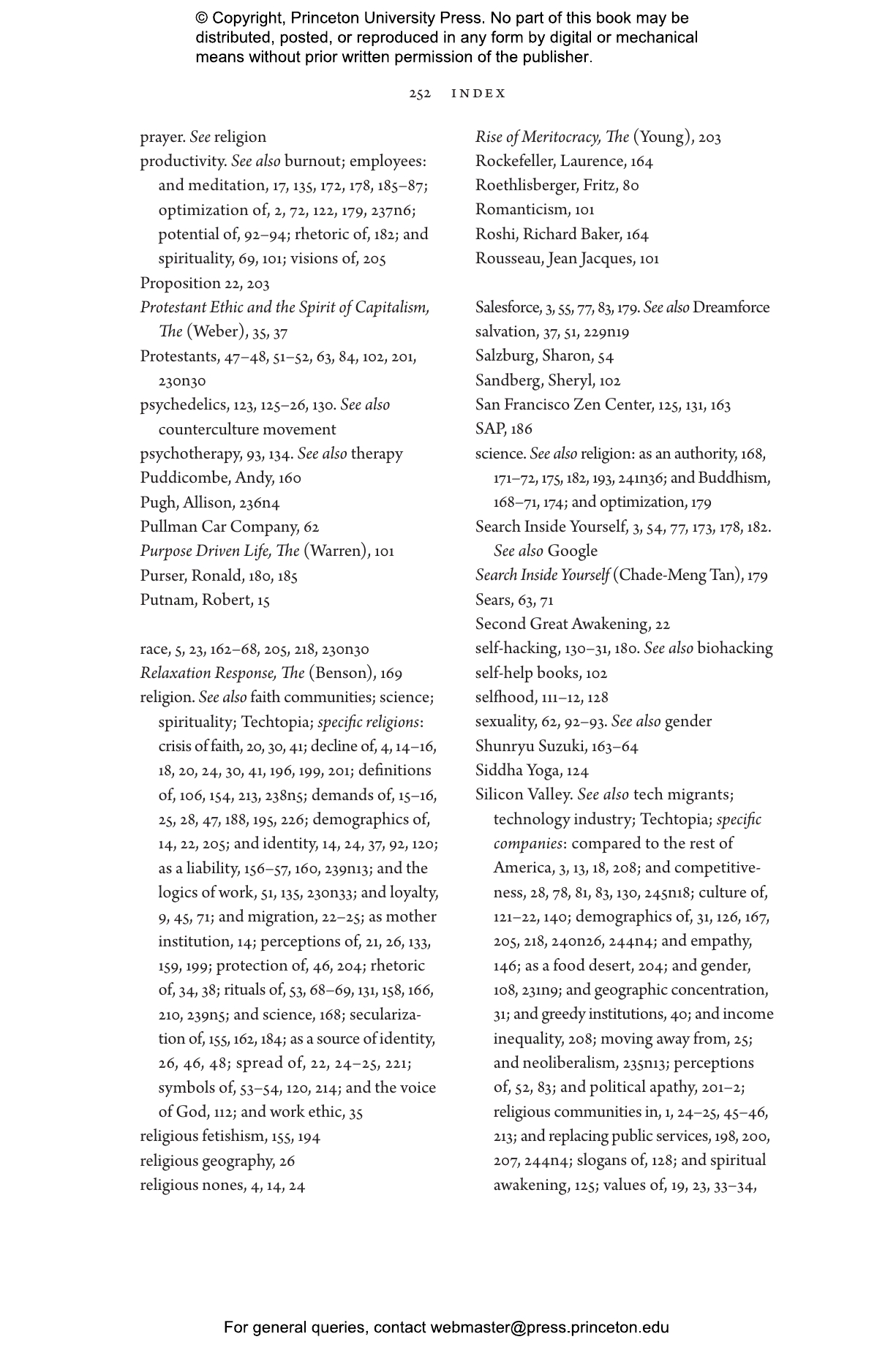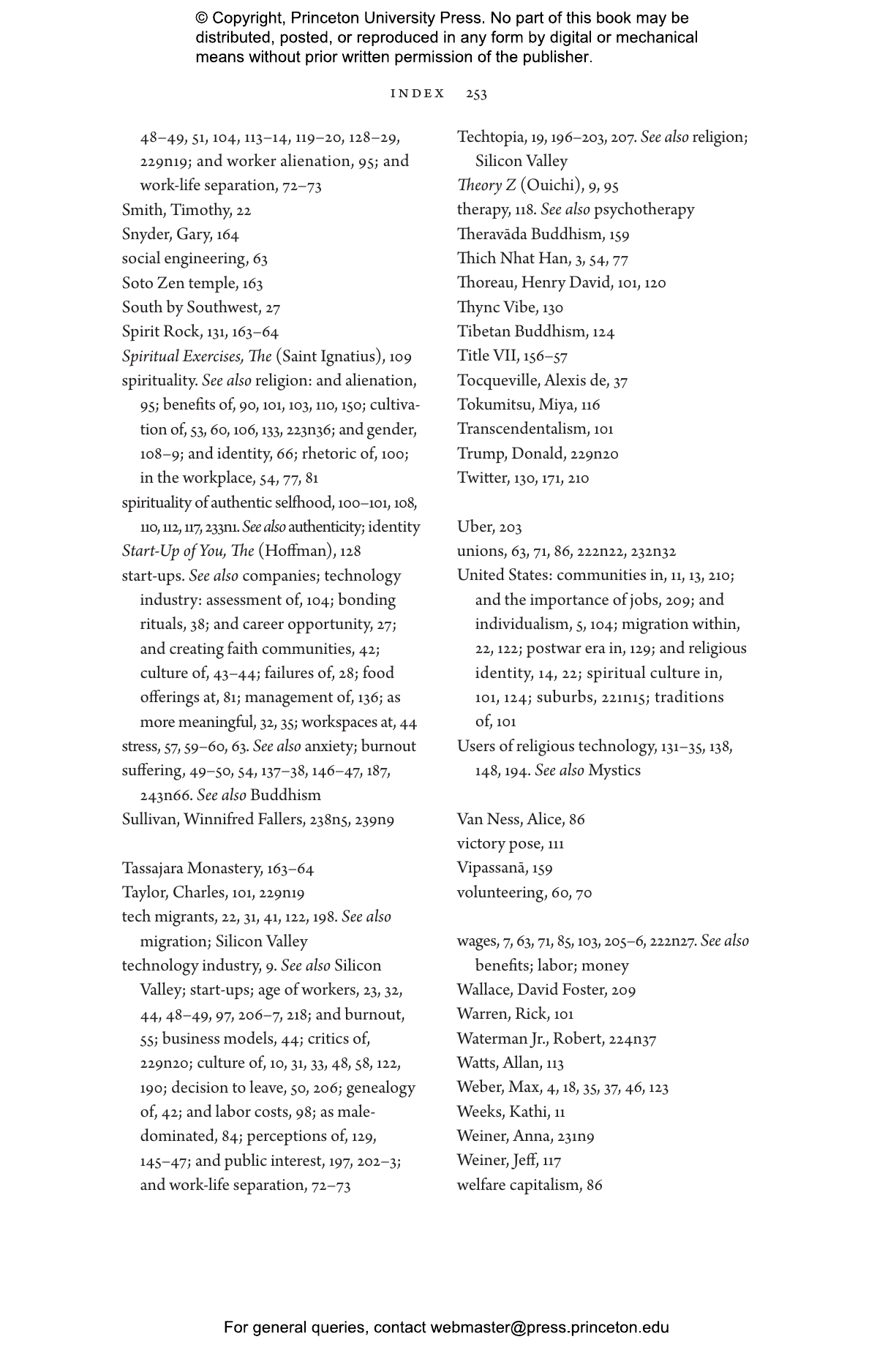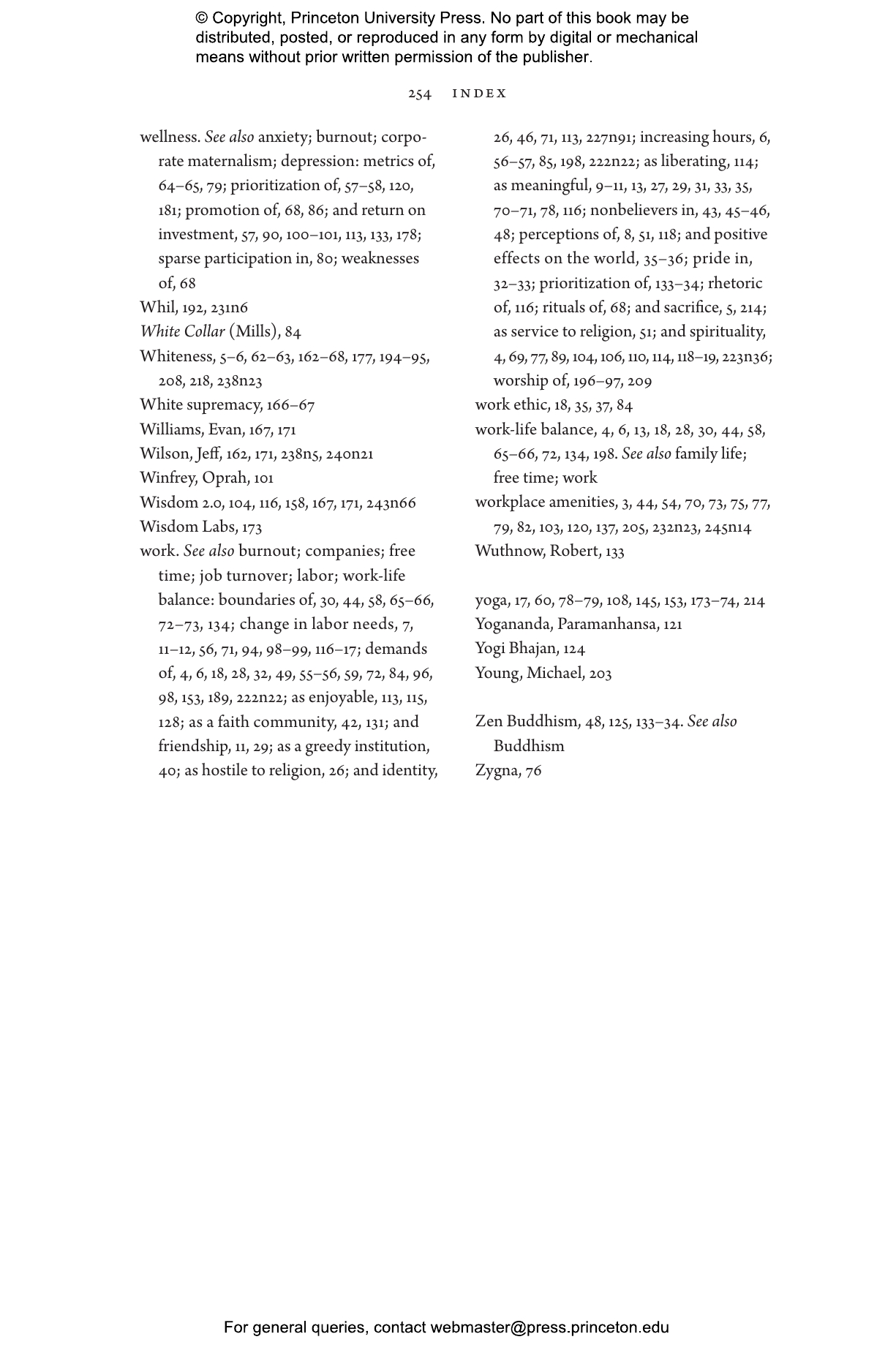Silicon Valley is known for its lavish perks, intense work culture, and spiritual gurus. Work Pray Code explores how tech companies are bringing religion into the workplace in ways that are replacing traditional places of worship, blurring the line between work and religion and transforming the very nature of spiritual experience in modern life.
Over the past forty years, highly skilled workers have been devoting more time and energy to their jobs than ever before. They are also leaving churches, synagogues, and temples in droves—but they have not abandoned religion. Carolyn Chen spent more than five years in Silicon Valley, conducting a wealth of in-depth interviews and gaining unprecedented access to the best and brightest of the tech world. The result is a penetrating account of how work now satisfies workers’ needs for belonging, identity, purpose, and transcendence that religion once met. Chen argues that tech firms are offering spiritual care such as Buddhist-inspired mindfulness practices to make their employees more productive, but that our religious traditions, communities, and public sphere are paying the price.
We all want our jobs to be meaningful and fulfilling. Work Pray Code reveals what can happen when work becomes religion, and when the workplace becomes the institution that shapes our souls.
Awards and Recognition
- One of Religion News Service's Most Intriguing Books on Religion Read This Year
"Work Pray Code presents an extraordinarily fine-grained map of the traffic between religion and profit-seeking among Silicon Valley’s elite."—Fred Turner, Los Angeles Review of Books
"A must-read for anyone interested in the rise of mindfulness in corporate culture, and anyone concerned with how Silicon Valley culture might be shaping and distorting modern ideas of the workplace and community-writ-large."—Ravi Chandra, Psychology Today
"Fascinating. . . . Work Pray Code is at its best when Chen contextualizes the findings of her research within broader historical and sociological concepts, such as corporate maternalism, the constant productivity push, and reduced civic engagement. . . . her findings should interest (and perhaps alarm) anyone who cares about the health and growth of the American church."—Dorcas Cheng-Tozun, Christianity Today
"A rich ethnography of Silicon Valley’s elite. . . . Compelling stories. . . . While Work Pray Code centers on the corporate mindfulness initiatives for elite tech workers, Chen also takes moments to explore the impacts of these programs on larger issues."—J. A. English-Lueck, Science
"Work Pray Code offers a rare sociological interrogation of the socio-political forces that direct citizens toward the ends of workplaces while diverting their attention from the ends of a shared public life or democratic practice."—Andrew Lynn, The Hedgehog Review
"A meticulous, absorbing ethnography of Silicon Valley workplaces. . . . Through Chen’s sharply focused sociological lens, [the quirks and perks of Silicon Valley work culture] inform a bigger story: about the human search for meaning and security in a world where a handful of companies and people wield so much power over what matters and who wins."—Margaret O’Mara, Foreign Affairs
"[Chen’s] questions are eminently important ones."—Bonnie Nadzam, Lion's Roar
"Chen reminds us that work is a fickle god, one that loves us only conditionally. She calls us back to genuine worship, to communities that care about us beyond what we can produce."—Jonathan Tran, Christian Century
"Anyone who cares about the future of work needs to read this book."—Bob Trube, Bob on Books
"A stellar socio-anthropological study of the secular monasteries that dominate our culture, where work is reframed as an act of devotion and devotion is co-opted by the hungry gods of Capital. Be careful what you worship."—James K.A. Smith, author of On the Road with Saint Augustine
"Her book, both sociological study and cultural rumination, is worth reading. Filled with interviews with actual employees who've subbed in their work lives for a broader religious or community one. It'll resonate with anyone in the Valley daze."—Antonio García Martínez, author of New York Times bestseller Chaos Monkeys
"Deeply researched ethnography. . . . [Chen’s] analysis is at its most powerful in the sections where she lets us hear from the people who manage and deploy spirituality in the workplace."—Anna Gibson, The Arts Fuse
"Well-researched and engaging."—Choice
"Chen’s book, drawn from six years of field work, makes a strong case. . . . Chen explains well why the tech industry workforce—more homogenous than most, almost entirely migrated from other parts of the world—is especially inclined to religious coherence at the workplace."—Kathryn Lofton, Journal of the American Academy of Religion
"Work Pray Code offers sociologists a new understanding of religion at work. . . . Chen’s book introduces a new dimension to the sociology of work and religion."—Elaine Howard Ecklund and Di Di, American Journal of Sociology
“Carolyn Chen walks boldly into the heart of Silicon Valley, the apex of America’s knowledge economy, to examine its culture, values, and practices. Work Pray Code is a terrific book, fascinating from start to finish, at turns inspiring and frightening. It establishes Chen as an essential interpreter of American society at large.”—Paul Spickard, University of California, Santa Barbara
“Chen brilliantly illuminates how tech companies colonize employees’ lives as they increasingly provide everything needed for a fulfilling existence, with troubling implications for our fractured public sphere. This book is a must-read for anyone interested in religion, work, and democracy.”—Jaime Kucinskas, author of The Mindful Elite
“Work Pray Code is an engaging book that takes the reader inside one of the industries that has profoundly shaped all of our lives. Through the tech workers she spent five years getting to know, Carolyn Chen gives us a matchless description of who they are, why they work so hard, what gives them meaning in life, and, for some, how their work has become a source of connection with the sacred.”—Robert Wuthnow, author of Why Religion Is Good for American Democracy
